
- Destinations
- Hotels Offers
- Tourist Information
- Traveller’s tales Blog
- Video Gallery
- φαγητό/Διασκέδαση
- Live Cams Greece
- Terms of Use

Tourist News
Αρχική σελίδα > Νέα > Protocol for Arrivals in Greece
Leave a Reply Cancel reply
You must be logged in to post a comment.
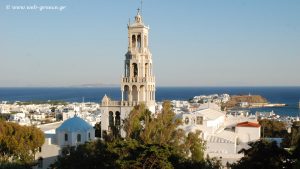
Independent: Tinos is one of the best holiday destinations

Die Welt: Santorini and Rhodes in the most popular travel destinations
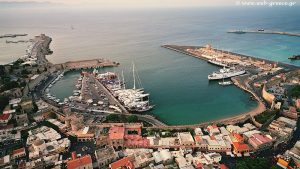
Crete and Rhodes in the top choices of the Germans for holidays in 2022
Enter your email address to to inform you for our news
Privacy Overview
We’re sorry, this site is currently experiencing technical difficulties. Please try again in a few moments. Exception: request blocked
- AUTUMN MODE
- WINTER MODE
- SPRING MODE
- SUMMER MODE
Amazing Destinations
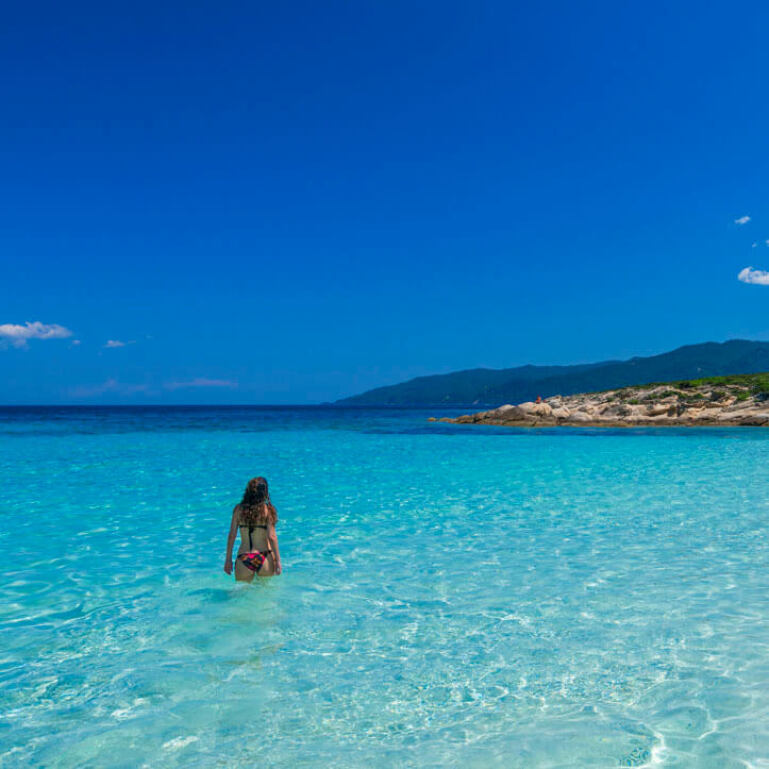
Kastellorizo
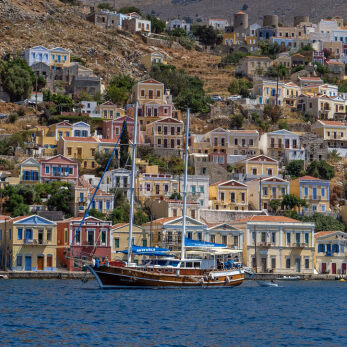
North Aegean
Read our blog.

Spoon Sweet Bitter Orange (nerantzi)
The athenian odyssey: history, culture, and cuisine.

Guidelines for a safe hike
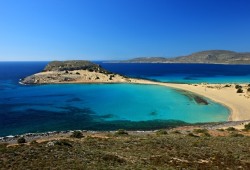
Elafonisos Eco Week 2024
Did you know that Greece is the 4th largest cheese producer worldwide. Greeks eat 28 kg per capita per year. And guess what, mostly feta cheese!
Greece is the place where democracy was born. But democracy in ancient Athens was significantly different from modern democracies. It was both more participatory and exclusive, and there were no political parties in Athenian democracy.
Did you know that Greece hosts 50% of the brown bear population in western & southern Europe.
Did you know that most days of the year are sunny in Greece? 250, to be exact.
Greece has one of the richest varieties of wildlife in Europe, including 116 species of mammals, 18 of amphibians, 59 of reptiles, 240 of birds, and 107 of fishes.
Greece is a leading producer of sea sponges.
About 7% of all the marble produced worldwide comes from Greece.
Did you know that Greece has the biggest EU consumption of olive oil per capita, with around 12 kg per person per year?
Crete's history as well as the inhabitants' personality were affected by the island's mountainous landscape.
Did you know that Greece has around 6,000 islands, islets and rocky islets? 2,000 of them are islands and only 107 of them are inhabited!
Τhe concept of democracy developed in Athens around the 6th century BC. The Greek word demokratia (δημοκρατία) meant “the power of the people”.
Olympus (2,917m), the mountain of Gods and Muses is the highest mountain of Greece and the 2nd in the Balkans.
Greece has historically engaged in wine making. Take for example Dionysus, the son of Zeus, the god of the grape-harvest, winemaking and wine. His face is seen today on the sommelier’s pin which is a symbol of respect to wine’s contribution throughout history.
The very first sprint race of the first Olympic Games in 776 B.C. was won by Coroebus of Elis, a cook!
Greece' s official name is Hellenic Republic. However Greeks call their country Hellas or Hellada.
Did you know that in Greece, 47 mountains are over 2000m., 105 mountains between 2000 and 1500m., 155 mountains are between 1500m. and 1000m. The number of mountains under 1000m. have yet not been recorded.
Feta, which is made from sheep and goat’s milk, is Greece’s national cheese. It dates back to the Homeric ages, and the average per-capita consumption of feta cheese in Greece is the highest in the world!
In Greece, people celebrate the “name day” of the saint that bears their name in a similar way to their own birthday.
Greek is one of the oldest spoken languages in Europe since it has been spoken for more than 3.000 years.
An old Greek legend says that when God created the world, he sifted all the soil onto the earth through a strainer. After every country had good soil, he tossed the stones left in the strainer over his shoulder and created Greece.
Explore. Respect. Preserve.
Discover Sustainable Greece

Experiences

- Exhibitions
Peloponnese
Thessaloniki.

Myths and Symbols in Modern Greek Art

"Χαίρε Ξένε. In the land of dreams"

Epidaurus Festival 2024
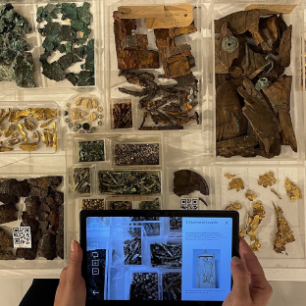
60 years | 60 moments

Dance Performances

The Parthenon and Byron

Release Athens Festival

Poor Things. The Costumes

14th Athens Open Air Film Festival

Evia Film Project

Vamvakou Experience Festival
Explore greece.
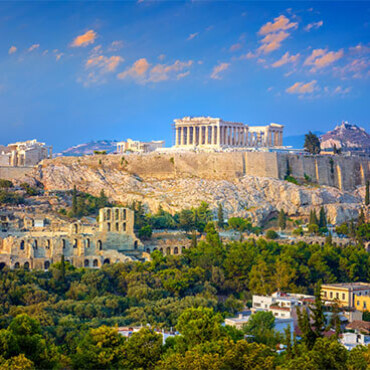
Places to Visit
Elefsina .
A journey through time
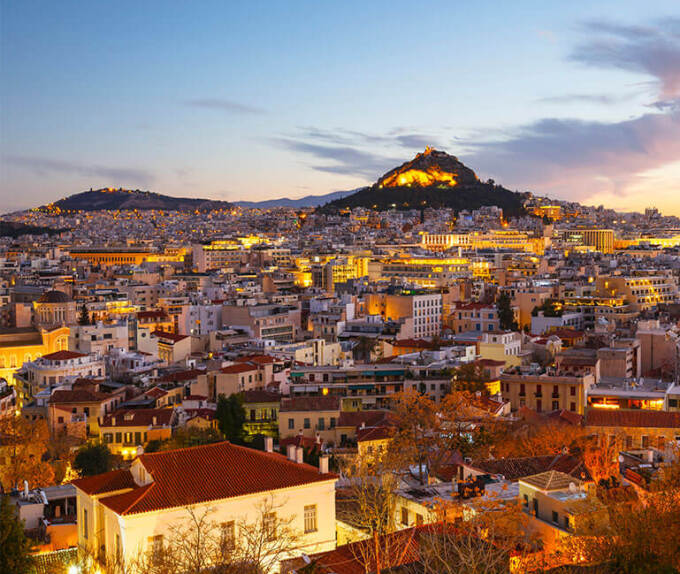
Central Greece
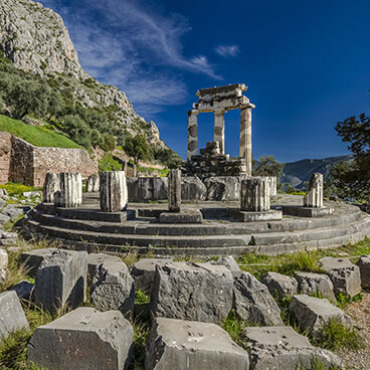
Messolonghi
The Seafaring Town
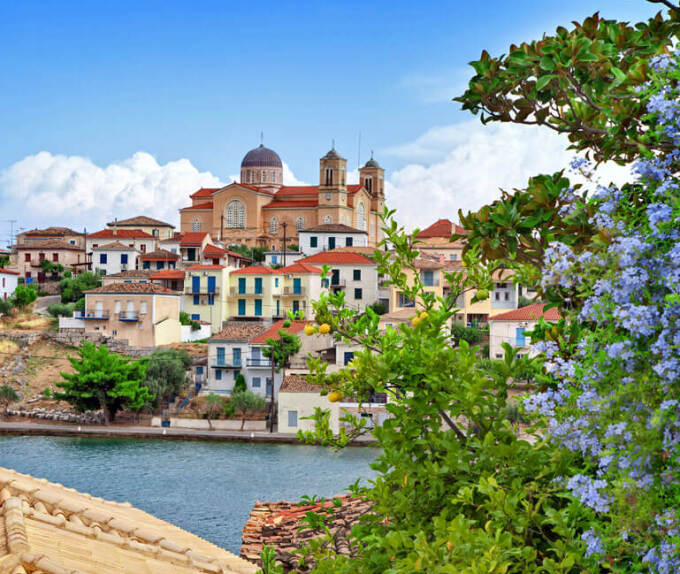
Travel to the Navel of the Earth

A journey in a magical land

The jewel of Epirus
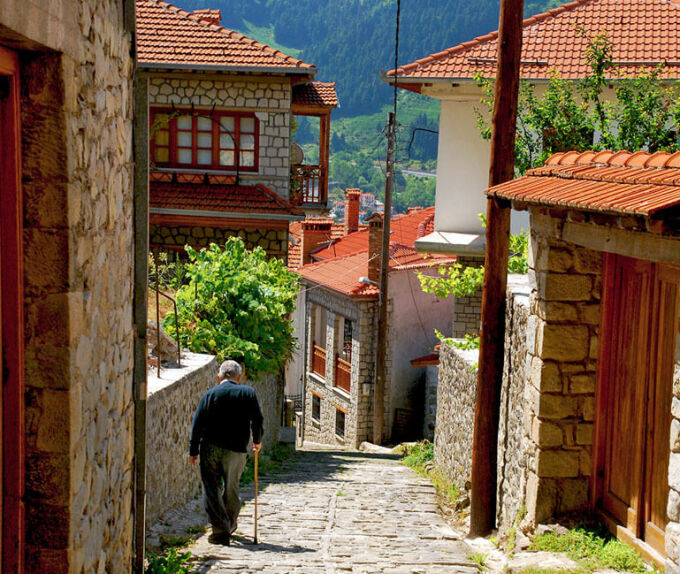
The Riviera of the Epirus Region
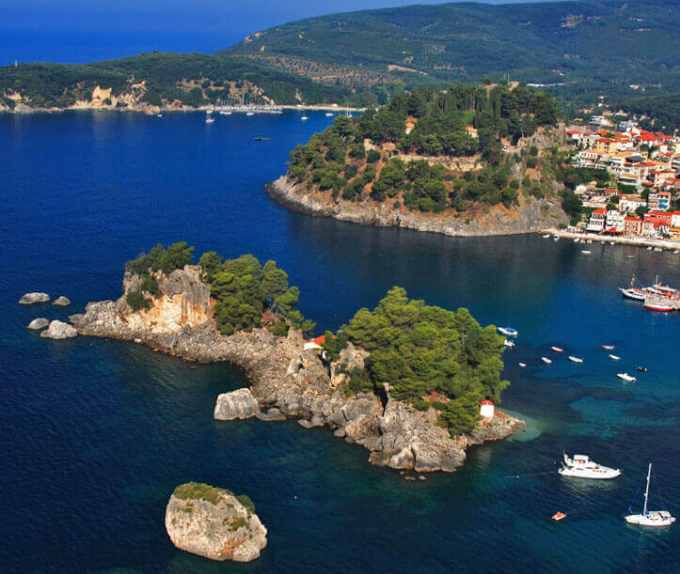
The Ionian fjord!
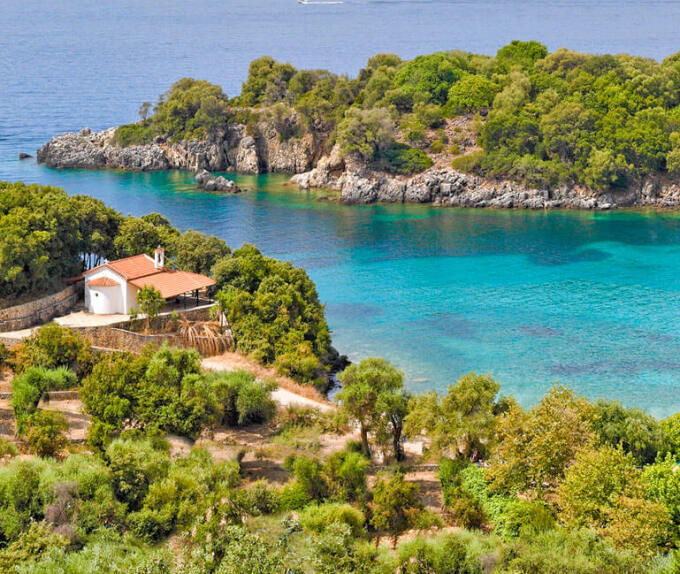
City of Experiences
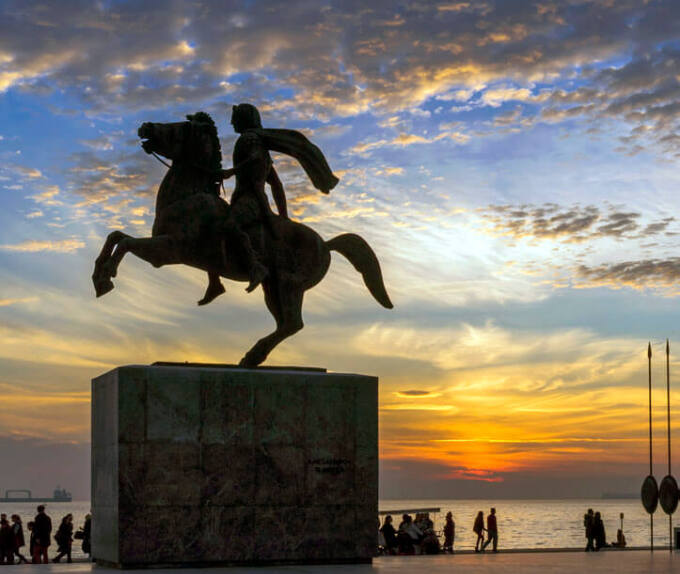
A breathtaking combination of blue and green

A trip to the birthplace of the Olympic Games

A fascinating wine tourism destination
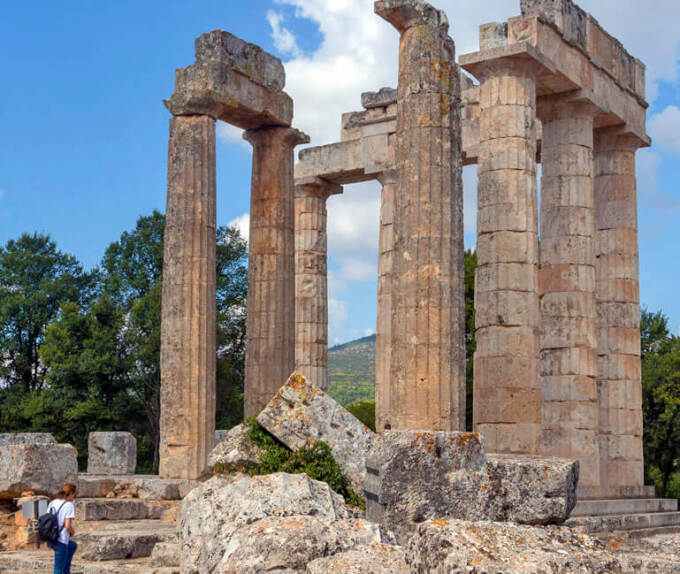
Beauty, Myth and History are all here
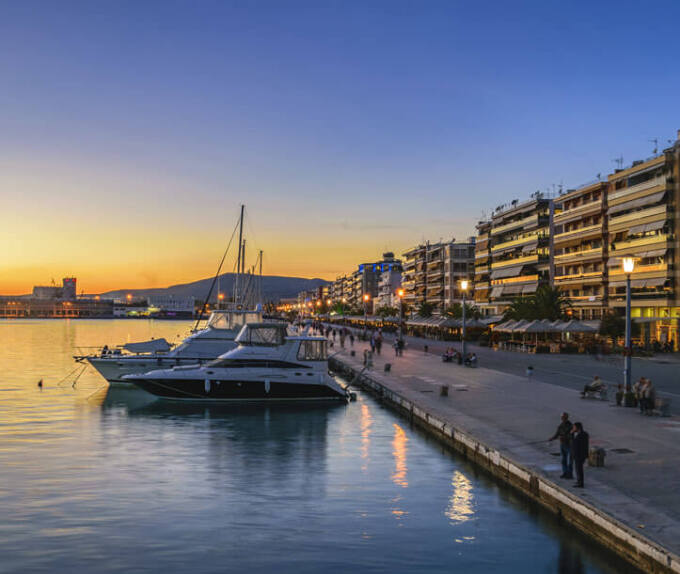
Alexandroupoli
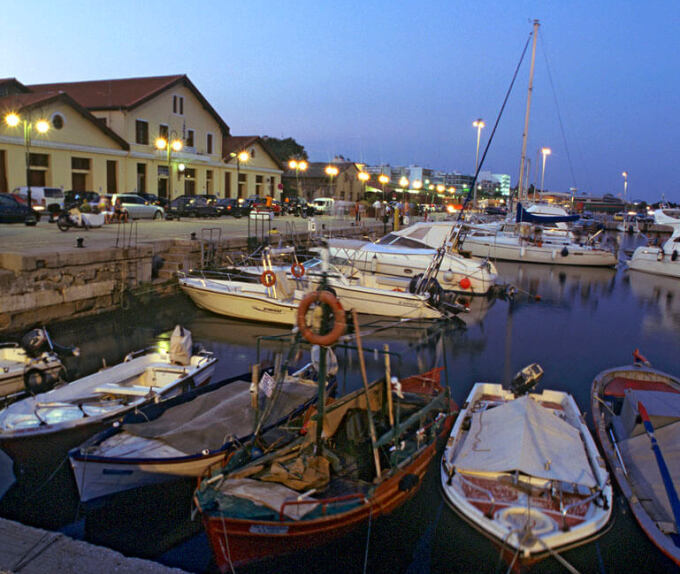
The noble Lady of Thrace
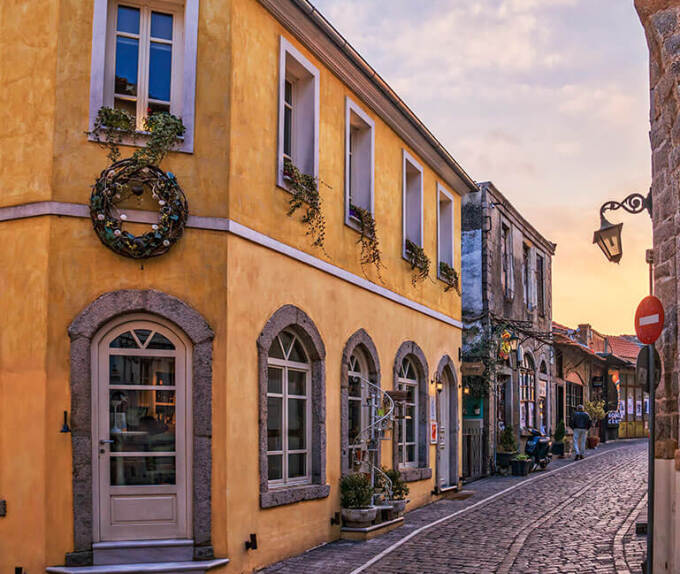
Argosaronic
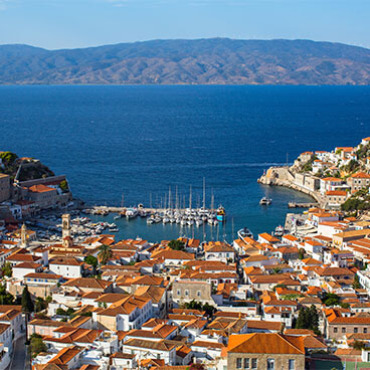
Kea (or Tzia)
Travel to the heart of the Cyclades
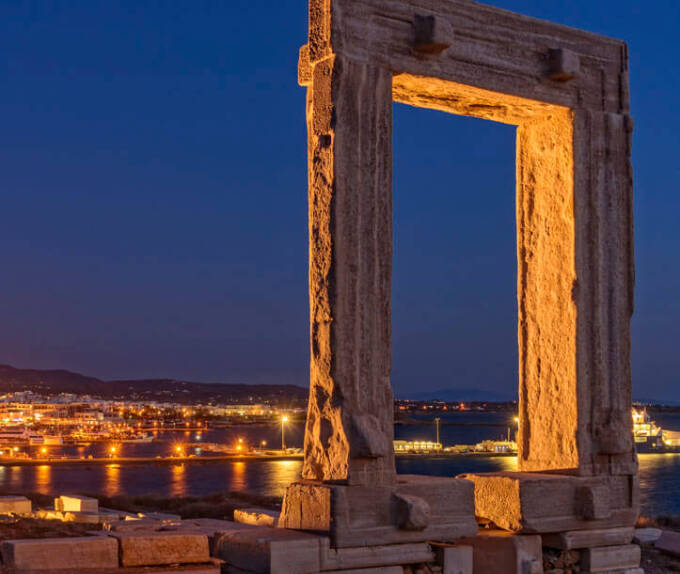
Where cosmopolitan meets traditional
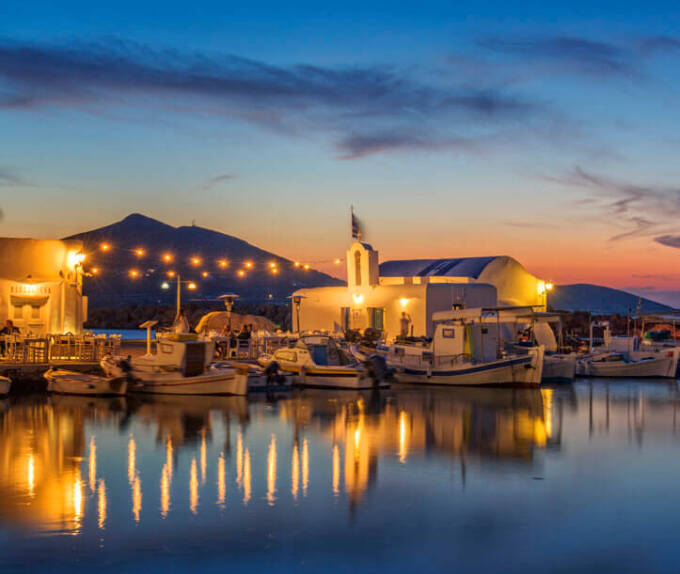
A rising destination in the Cyclades

The Big Blue

The "handmade" island

The island with heavenly beaches
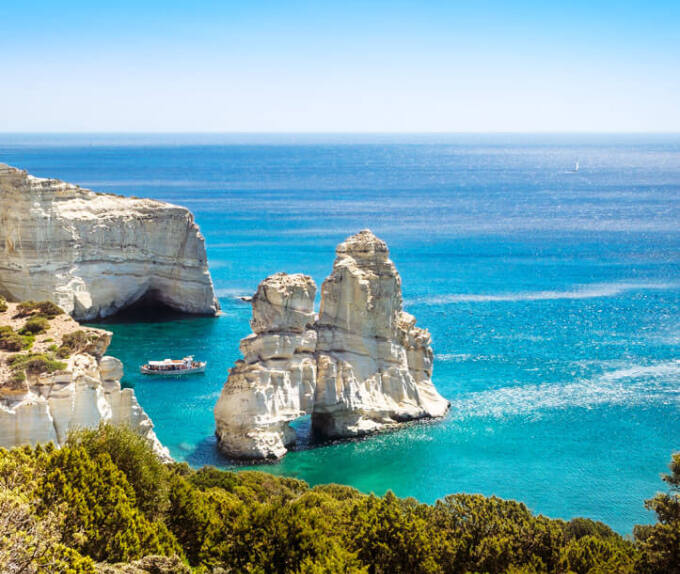
Welcome to the Cyclades
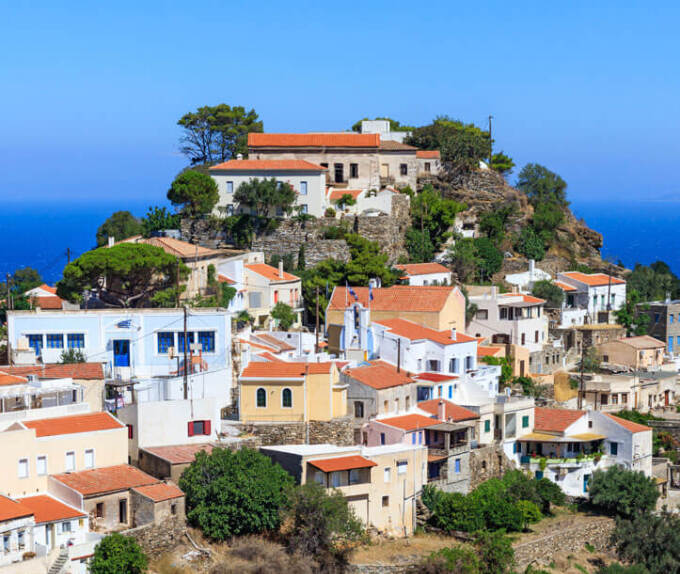
The Exciting Island
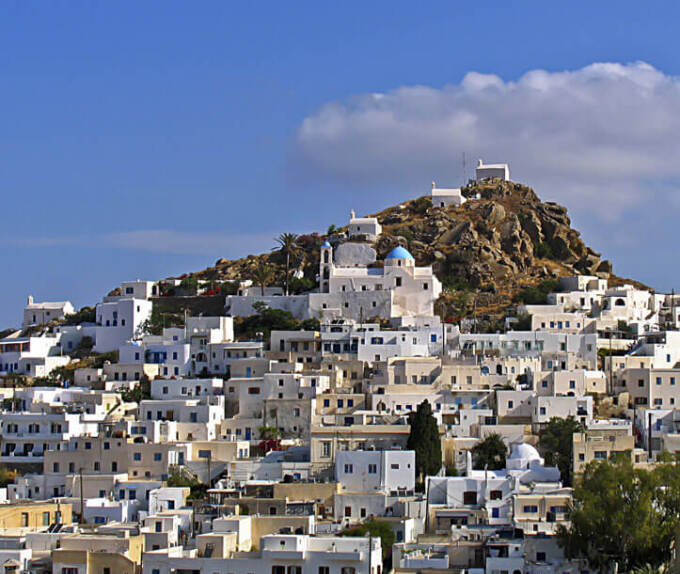
Simply irresistible
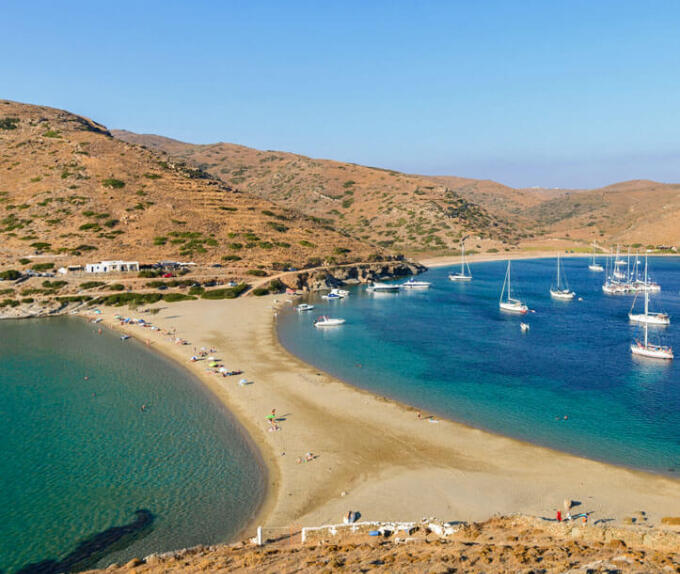
An island of raw beauty
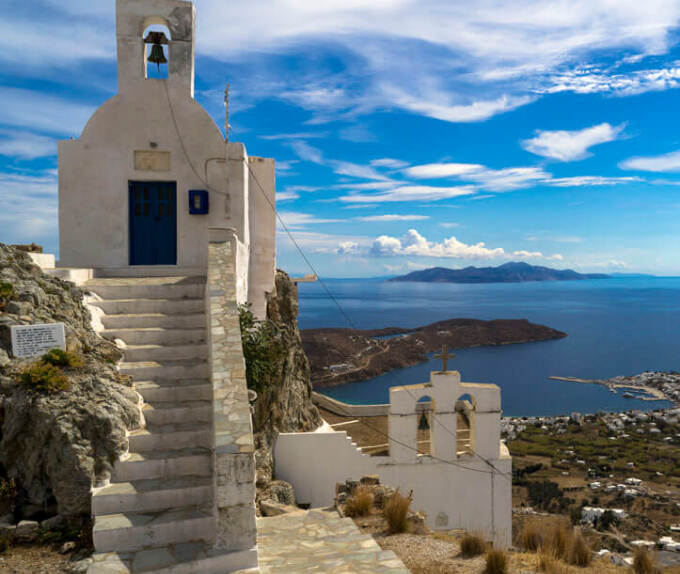
A balanced and harmonic cycladic island

Anti-conformist & carefree
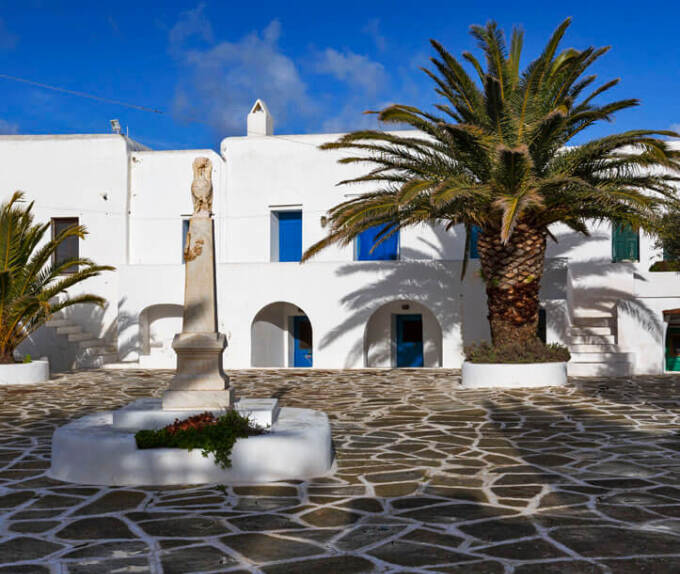
The Chalk Island
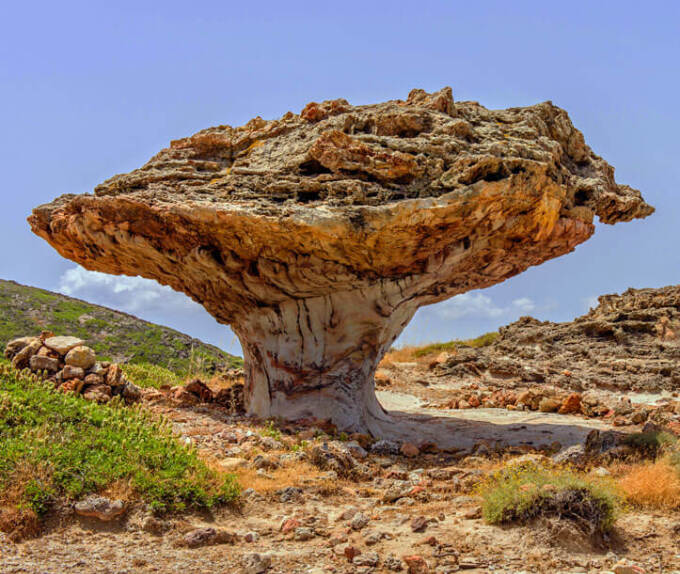
Folegandros
Bathed in the sunlight of the Aegean Sea
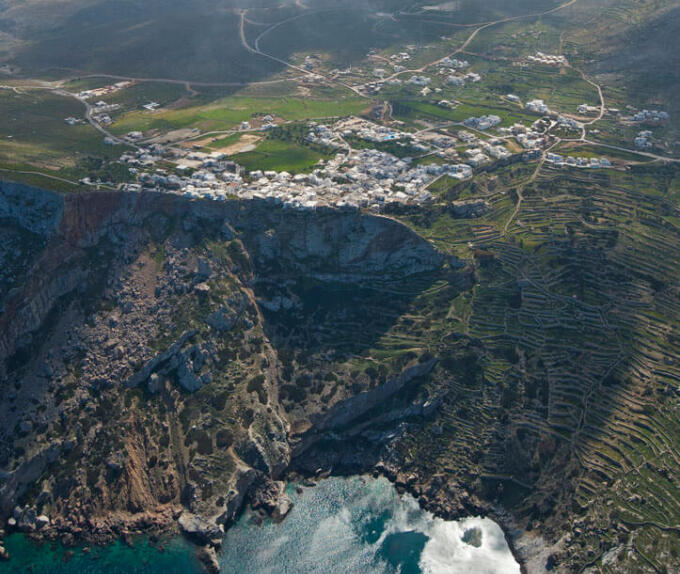
A piece of heaven in the Lesser Cyclades
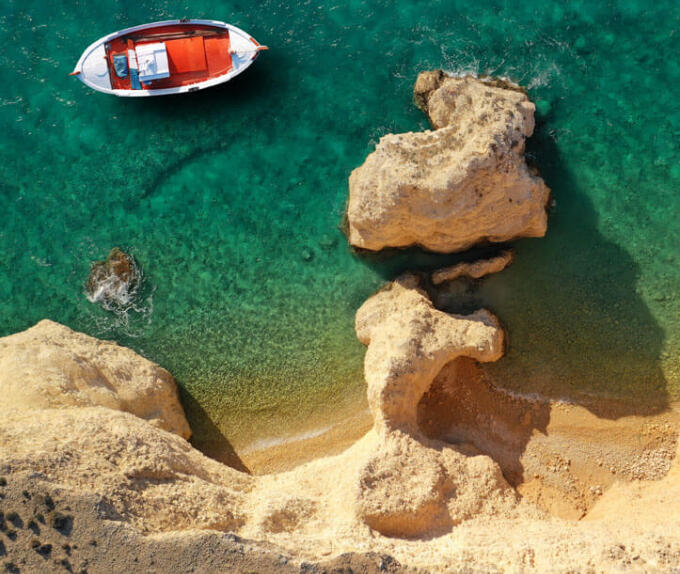
The head priest of the Cyclades
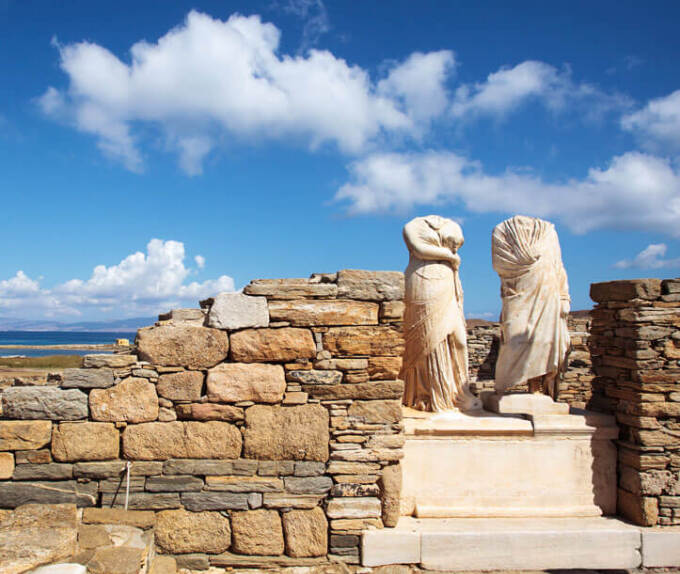
Agios Nikolaos
The cradle of the Minoan civilisation
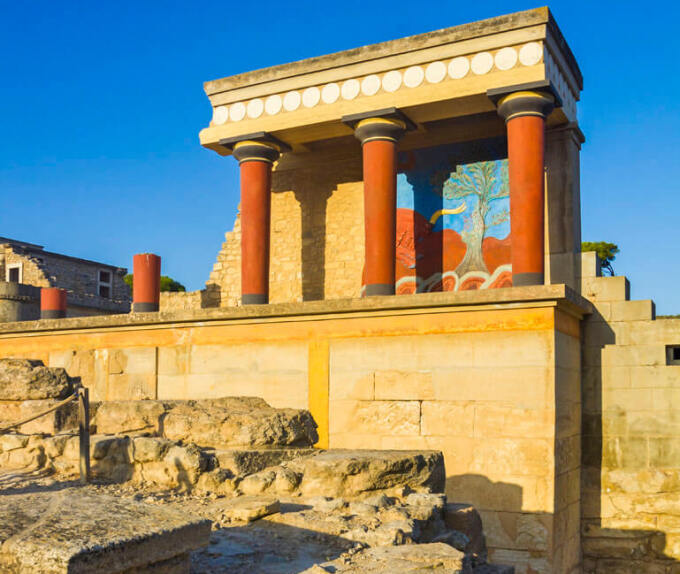
A Butterfly-Shaped Island
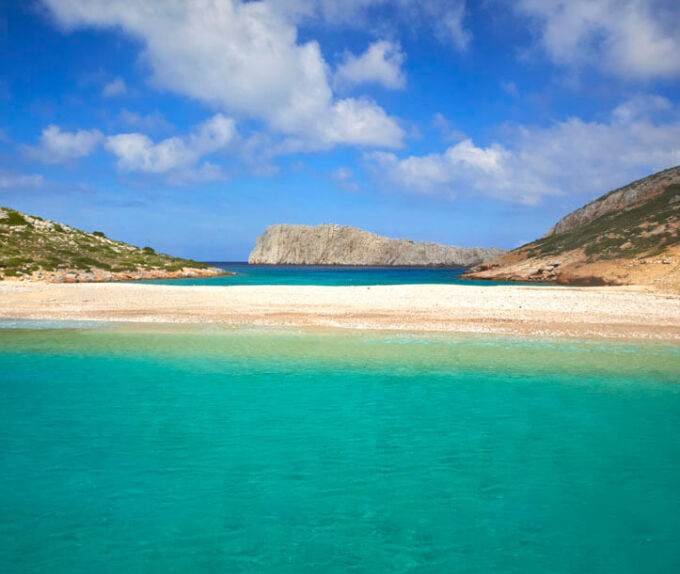
The Sponge Harvesting and Rock Climbing Island
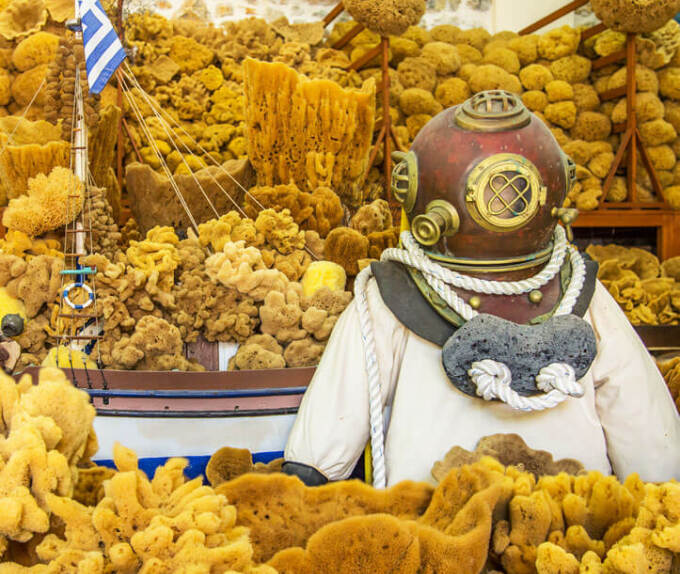
The wild beauty of the Dodecanese
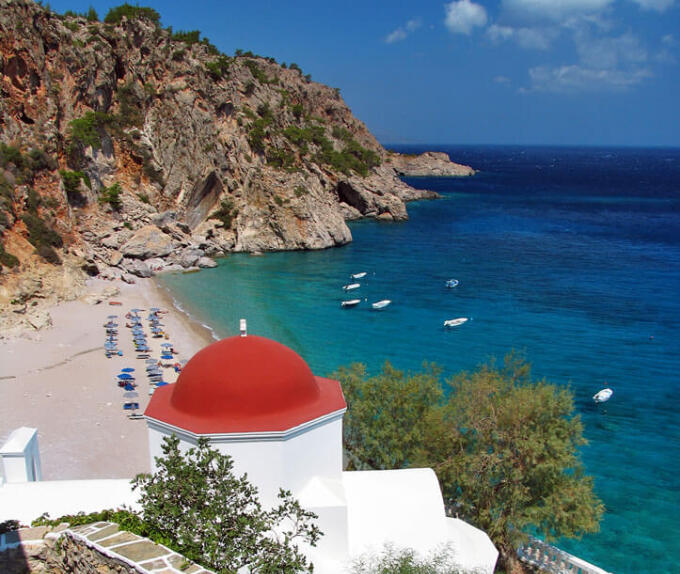
Wild and Beautiful
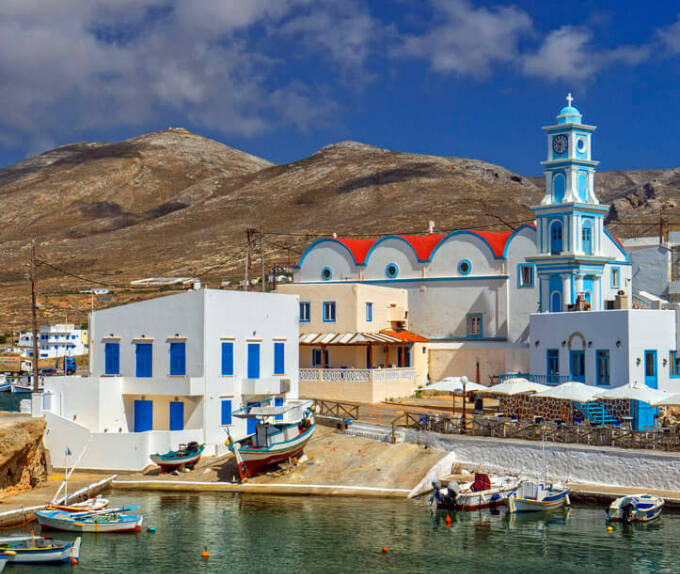
A Remote Treasure Island

Hippocrates’ Island
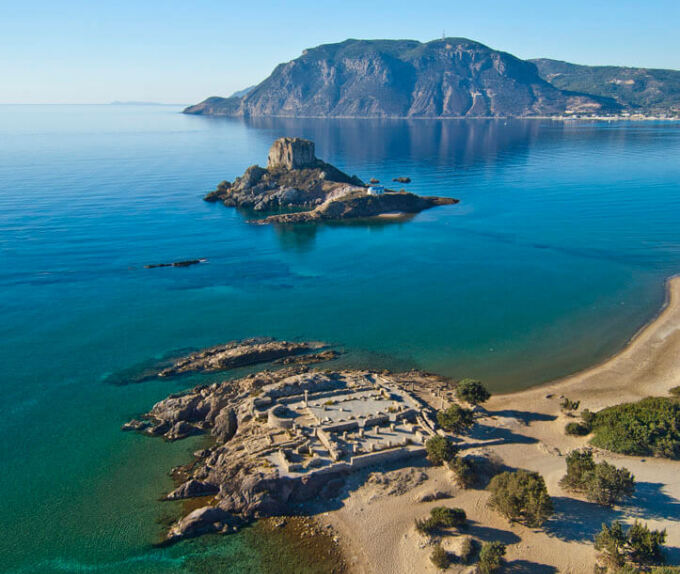
Calypso’s Island

A lesser known gem in the Dodecanese

Island with a Unique Volcanic Terrain
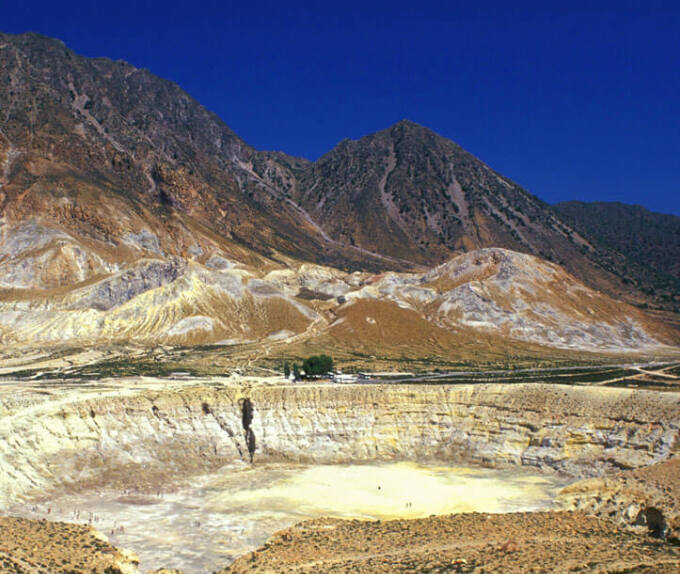
Religious legacy meets beauty of Nature
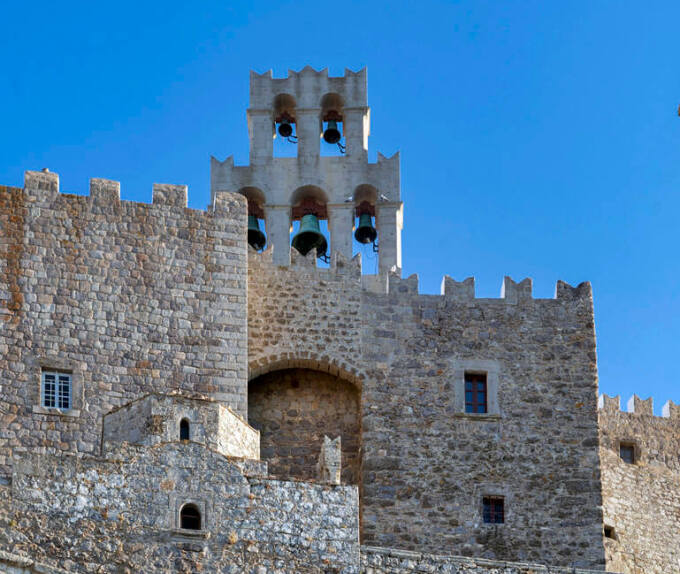
The island of vivid contrasts
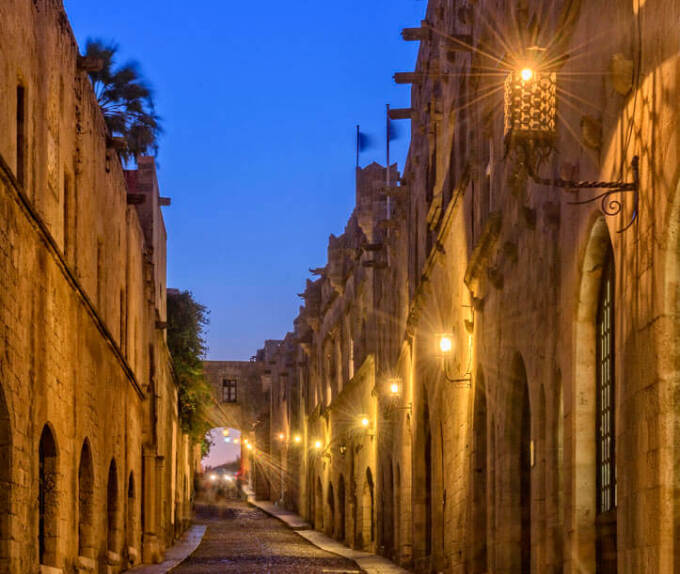
A Fairytale-like Island

The perfect choice for a laid-back holiday
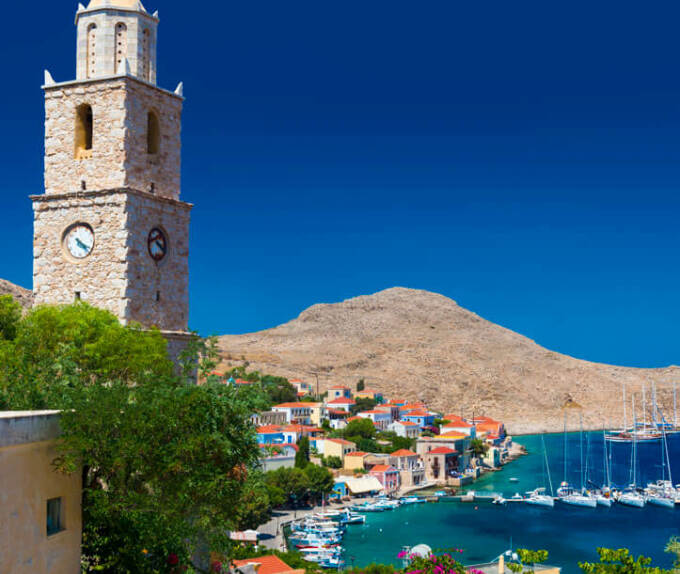
Odysseus’s home
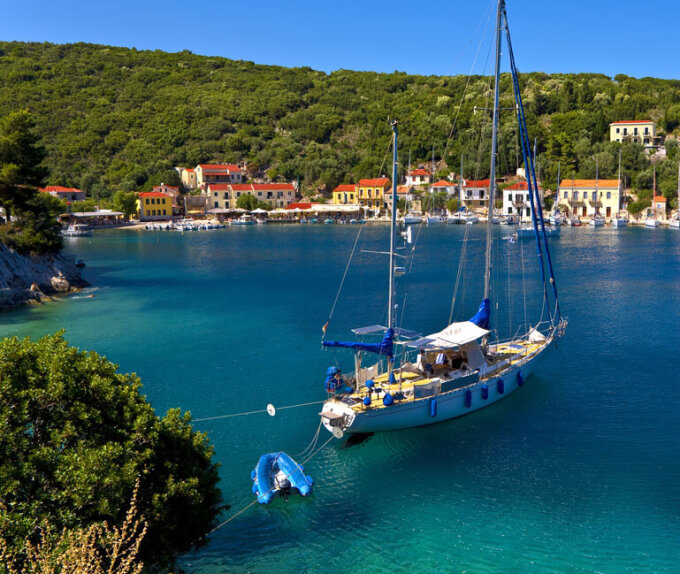
Chic and delicate by nature
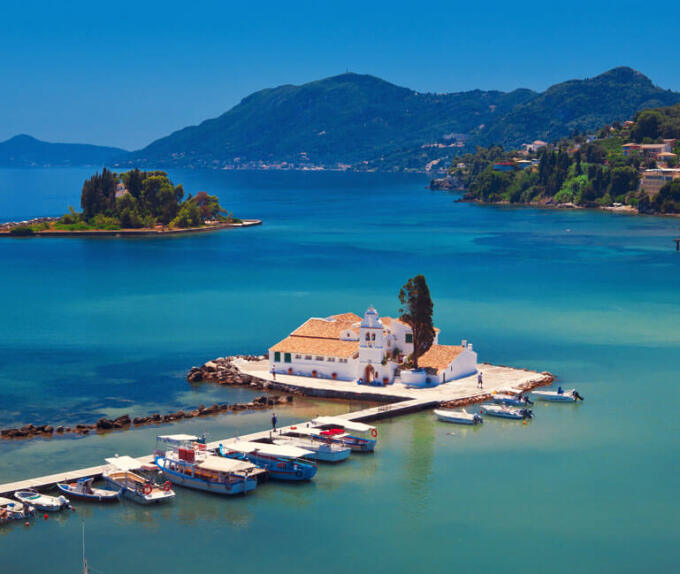
Agios Efstratios
The island of the Great Gods
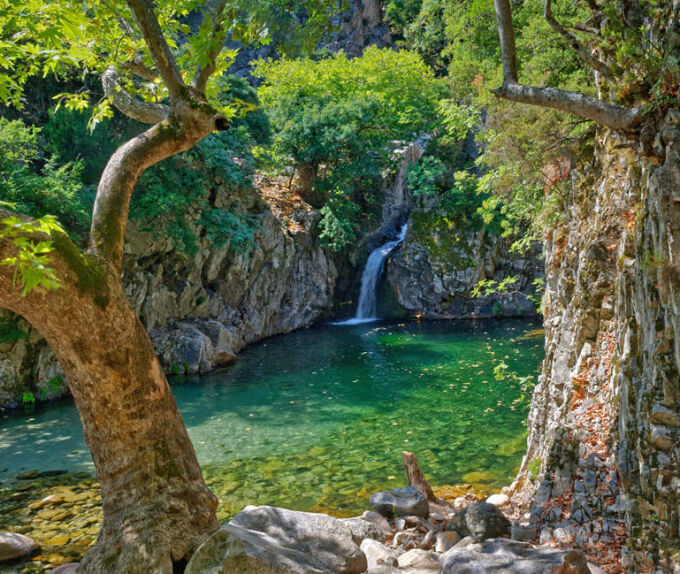
A Tapestry of Natural Wonders and Cultural Riches
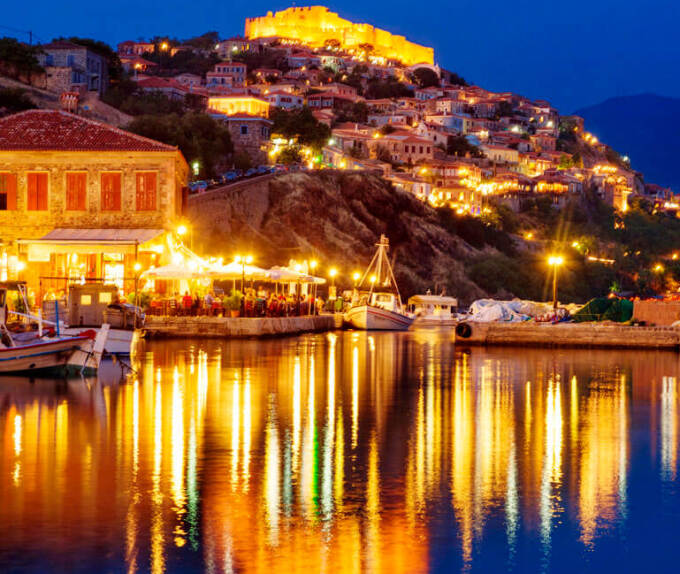
An island of sheer beauty
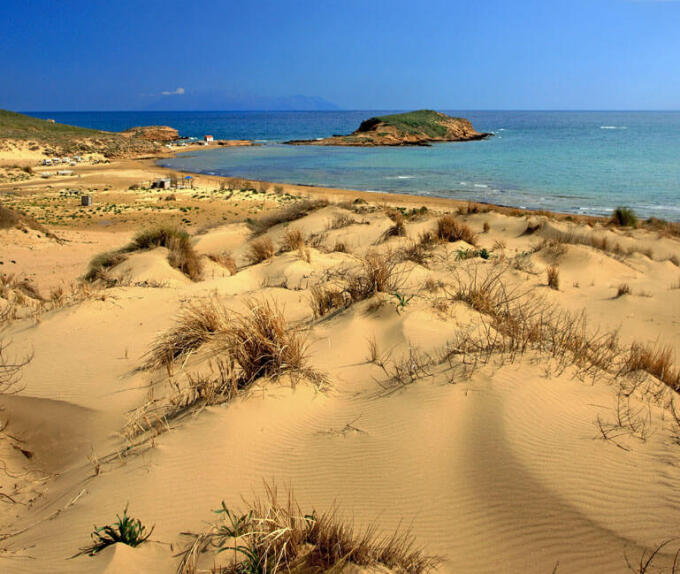
The island of Hera and Pythagoras

The island of glorious past & pristine beauty
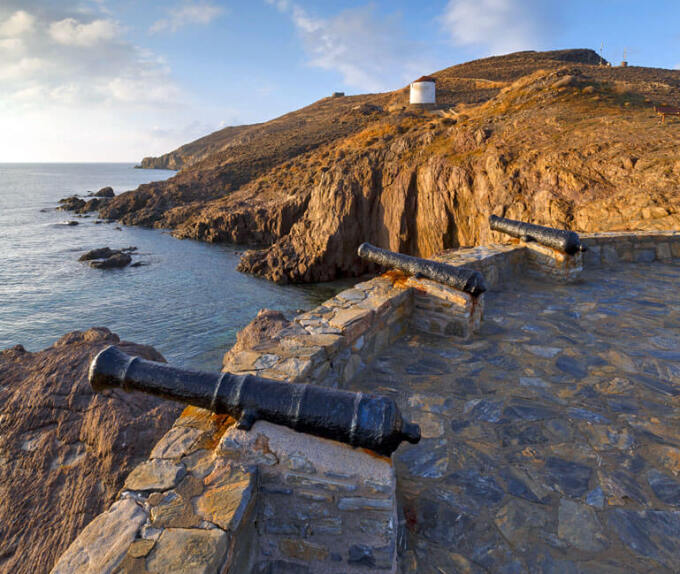
An archipelago away from the crowds
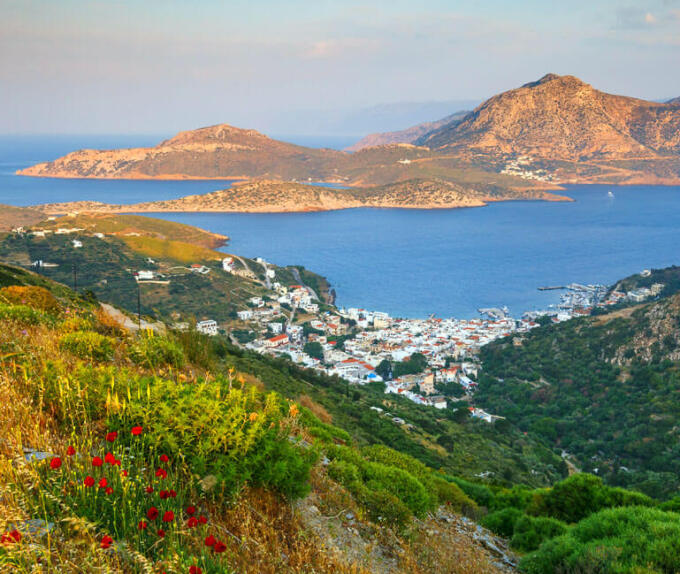
Τhe remote islands of ship owners
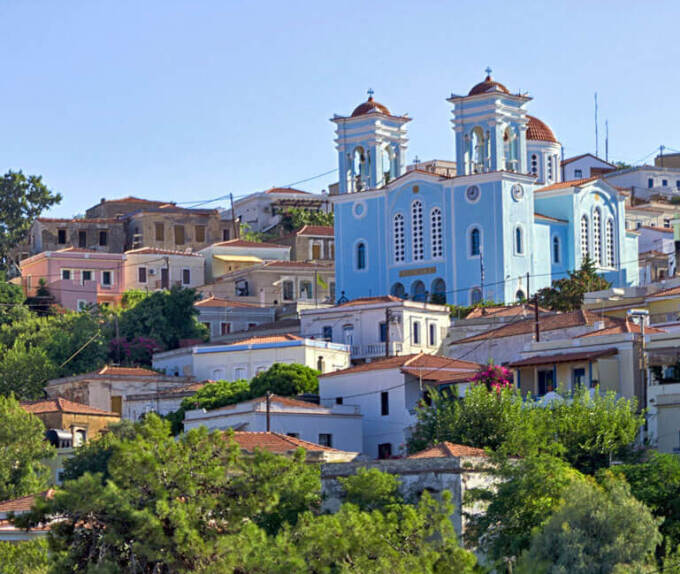
A Mise-en-Scène Island

Enjoy nature in all its splendour!
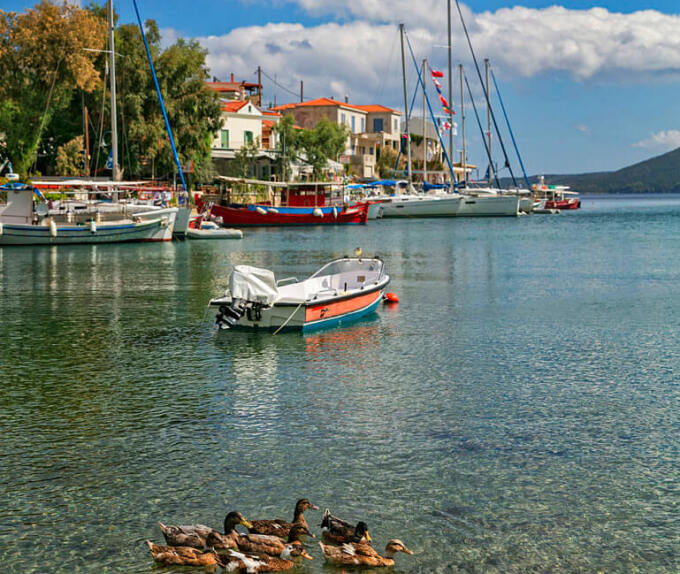
#VisitGreece
Share your moments in Greece

You are using an outdated browser. Upgrade your browser today or install Google Chrome Frame to better experience this site.
Greece Traveler View
Travel health notices, vaccines and medicines, non-vaccine-preventable diseases, stay healthy and safe.
- Packing List
After Your Trip
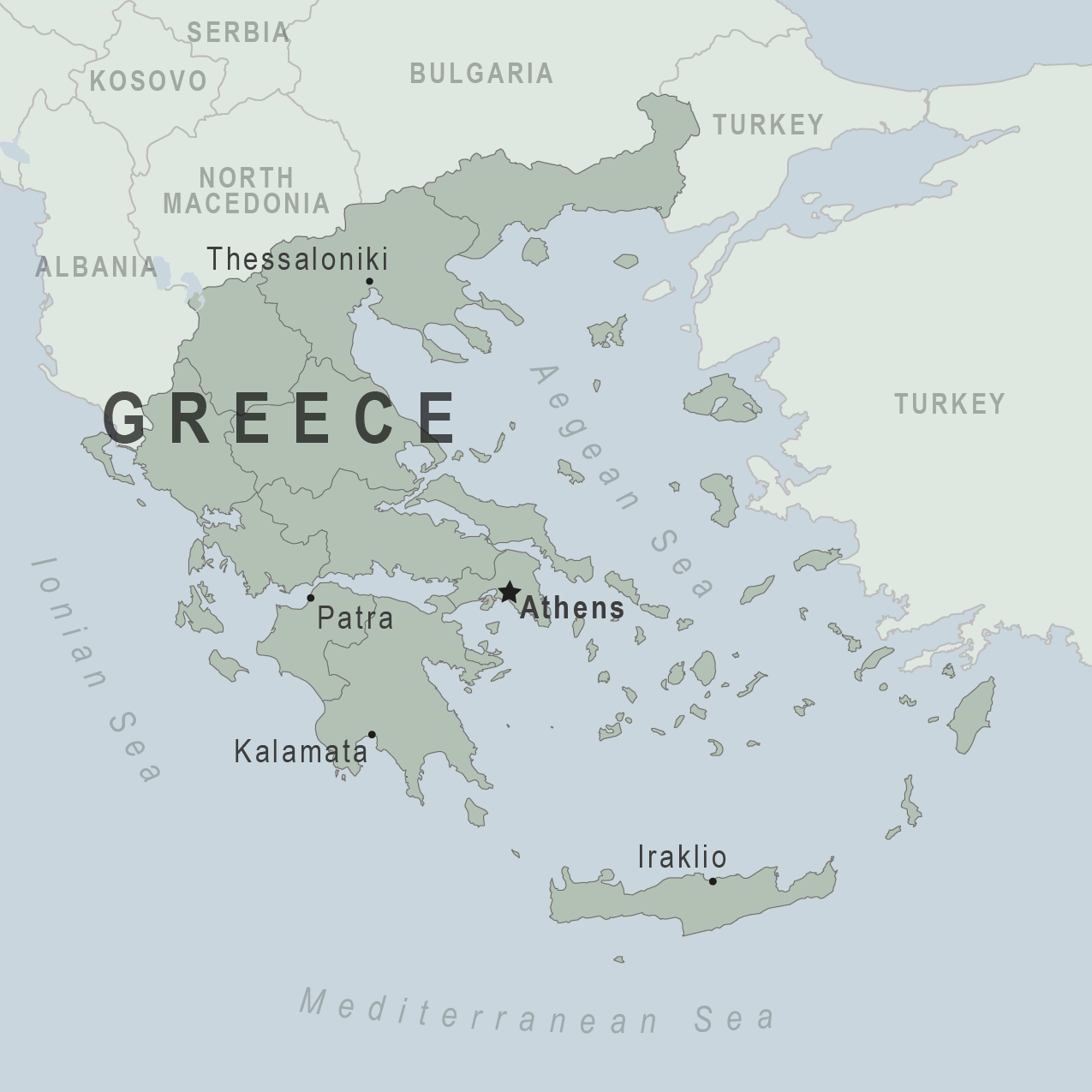
There are no notices currently in effect for Greece.
⇧ Top
Check the vaccines and medicines list and visit your doctor at least a month before your trip to get vaccines or medicines you may need. If you or your doctor need help finding a location that provides certain vaccines or medicines, visit the Find a Clinic page.
Routine vaccines
Recommendations.
Make sure you are up-to-date on all routine vaccines before every trip. Some of these vaccines include
- Chickenpox (Varicella)
- Diphtheria-Tetanus-Pertussis
- Flu (influenza)
- Measles-Mumps-Rubella (MMR)
Immunization schedules
All eligible travelers should be up to date with their COVID-19 vaccines. Please see Your COVID-19 Vaccination for more information.
COVID-19 vaccine
Hepatitis A
Consider hepatitis A vaccination for most travelers. It is recommended for travelers who will be doing higher risk activities, such as visiting smaller cities, villages, or rural areas where a traveler might get infected through food or water. It is recommended for travelers who plan on eating street food.
Hepatitis A - CDC Yellow Book
Dosing info - Hep A
Hepatitis B
Recommended for unvaccinated travelers younger than 60 years old traveling to Greece. Unvaccinated travelers 60 years and older may get vaccinated before traveling to Greece.
Hepatitis B - CDC Yellow Book
Dosing info - Hep B
Cases of measles are on the rise worldwide. Travelers are at risk of measles if they have not been fully vaccinated at least two weeks prior to departure, or have not had measles in the past, and travel internationally to areas where measles is spreading.
All international travelers should be fully vaccinated against measles with the measles-mumps-rubella (MMR) vaccine, including an early dose for infants 6–11 months, according to CDC’s measles vaccination recommendations for international travel .
Measles (Rubeola) - CDC Yellow Book
Dogs infected with rabies are not commonly found in Greece.
If rabies exposures occur while in Greece, rabies vaccines are typically available throughout most of the country.
Rabies pre-exposure vaccination considerations include whether travelers 1) will be performing occupational or recreational activities that increase risk for exposure to potentially rabid animals and 2) might have difficulty getting prompt access to safe post-exposure prophylaxis.
Please consult with a healthcare provider to determine whether you should receive pre-exposure vaccination before travel.
For more information, see country rabies status assessments .
Rabies - CDC Yellow Book
Avoid contaminated water
Leptospirosis
How most people get sick (most common modes of transmission)
- Touching urine or other body fluids from an animal infected with leptospirosis
- Swimming or wading in urine-contaminated fresh water, or contact with urine-contaminated mud
- Drinking water or eating food contaminated with animal urine
- Avoid contaminated water and soil
- Avoid floodwater
Clinical Guidance
Avoid bug bites.
Crimean-Congo Hemorrhagic fever
- Tick bite
- Touching the body fluids of a person or animal infected with CCHF
- Avoid Bug Bites
Leishmaniasis
- Sand fly bite
Tick-borne Encephalitis
Tickborne Encephalitis
Airborne & droplet
- Breathing in air or accidentally eating food contaminated with the urine, droppings, or saliva of infected rodents
- Bite from an infected rodent
- Less commonly, being around someone sick with hantavirus (only occurs with Andes virus)
- Avoid rodents and areas where they live
- Avoid sick people
Tuberculosis (TB)
- Breathe in TB bacteria that is in the air from an infected and contagious person coughing, speaking, or singing.
Learn actions you can take to stay healthy and safe on your trip. Vaccines cannot protect you from many diseases in Greece, so your behaviors are important.
Eat and drink safely
Food and water standards around the world vary based on the destination. Standards may also differ within a country and risk may change depending on activity type (e.g., hiking versus business trip). You can learn more about safe food and drink choices when traveling by accessing the resources below.
- Choose Safe Food and Drinks When Traveling
- Water Treatment Options When Hiking, Camping or Traveling
- Global Water, Sanitation and Hygiene | Healthy Water
- Avoid Contaminated Water During Travel
You can also visit the Department of State Country Information Pages for additional information about food and water safety.
Prevent bug bites
Although Greece is an industrialized country, bug bites here can still spread diseases. Just as you would in the United States, try to avoid bug bites while spending time outside or in wooded areas.
What can I do to prevent bug bites?
- Cover exposed skin by wearing long-sleeved shirts, long pants, and hats.
- Use an appropriate insect repellent (see below).
- Consider using permethrin-treated clothing and gear if spending a lot of time outside. Do not use permethrin directly on skin.
What type of insect repellent should I use?
- FOR PROTECTION AGAINST TICKS AND MOSQUITOES: Use a repellent that contains 20% or more DEET for protection that lasts up to several hours.
- Picaridin (also known as KBR 3023, Bayrepel, and icaridin)
- Oil of lemon eucalyptus (OLE) or para-menthane-diol (PMD)
- 2-undecanone
- Always use insect repellent as directed.
What should I do if I am bitten by bugs?
- Avoid scratching bug bites, and apply hydrocortisone cream or calamine lotion to reduce the itching.
- Check your entire body for ticks after outdoor activity. Be sure to remove ticks properly.
What can I do to avoid bed bugs?
Although bed bugs do not carry disease, they are an annoyance. See our information page about avoiding bug bites for some easy tips to avoid them. For more information on bed bugs, see Bed Bugs .
For more detailed information on avoiding bug bites, see Avoid Bug Bites .
Stay safe outdoors
If your travel plans in Greece include outdoor activities, take these steps to stay safe and healthy during your trip:
- Stay alert to changing weather conditions and adjust your plans if conditions become unsafe.
- Prepare for activities by wearing the right clothes and packing protective items, such as bug spray, sunscreen, and a basic first aid kit.
- Consider learning basic first aid and CPR before travel. Bring a travel health kit with items appropriate for your activities.
- If you are outside for many hours in the heat, eat salty snacks and drink water to stay hydrated and replace salt lost through sweating.
- Protect yourself from UV radiation : use sunscreen with an SPF of at least 15, wear protective clothing, and seek shade during the hottest time of day (10 a.m.–4 p.m.).
- Be especially careful during summer months and at high elevation. Because sunlight reflects off snow, sand, and water, sun exposure may be increased during activities like skiing, swimming, and sailing.
- Very cold temperatures can be dangerous. Dress in layers and cover heads, hands, and feet properly if you are visiting a cold location.
Stay safe around water
- Swim only in designated swimming areas. Obey lifeguards and warning flags on beaches.
- Do not dive into shallow water.
- Avoid swallowing water when swimming. Untreated water can carry germs that make you sick.
- Practice safe boating—follow all boating safety laws, do not drink alcohol if you are driving a boat, and always wear a life jacket.
Keep away from animals
Most animals avoid people, but they may attack if they feel threatened, are protecting their young or territory, or if they are injured or ill. Animal bites and scratches can lead to serious diseases such as rabies.
Follow these tips to protect yourself:
- Do not touch or feed any animals you do not know.
- Do not allow animals to lick open wounds, and do not get animal saliva in your eyes or mouth.
- Avoid rodents and their urine and feces.
- Traveling pets should be supervised closely and not allowed to come in contact with local animals.
- If you wake in a room with a bat, seek medical care immediately. Bat bites may be hard to see.
All animals can pose a threat, but be extra careful around dogs, bats, monkeys, sea animals such as jellyfish, and snakes. If you are bitten or scratched by an animal, immediately:
- Wash the wound with soap and clean water.
- Go to a doctor right away.
- Tell your doctor about your injury when you get back to the United States.
Reduce your exposure to germs
Follow these tips to avoid getting sick or spreading illness to others while traveling:
- Wash your hands often, especially before eating.
- If soap and water aren’t available, clean hands with hand sanitizer (containing at least 60% alcohol).
- Don’t touch your eyes, nose, or mouth. If you need to touch your face, make sure your hands are clean.
- Cover your mouth and nose with a tissue or your sleeve (not your hands) when coughing or sneezing.
- Try to avoid contact with people who are sick.
- If you are sick, stay home or in your hotel room, unless you need medical care.
Avoid sharing body fluids
Diseases can be spread through body fluids, such as saliva, blood, vomit, and semen.
Protect yourself:
- Use latex condoms correctly.
- Do not inject drugs.
- Limit alcohol consumption. People take more risks when intoxicated.
- Do not share needles or any devices that can break the skin. That includes needles for tattoos, piercings, and acupuncture.
- If you receive medical or dental care, make sure the equipment is disinfected or sanitized.
Know how to get medical care while traveling
Plan for how you will get health care during your trip, should the need arise:
- Carry a list of local doctors and hospitals at your destination.
- Review your health insurance plan to determine what medical services it would cover during your trip. Consider purchasing travel health and medical evacuation insurance for things your regular insurance will not cover.
- Carry a card that identifies, in the local language, your blood type, chronic conditions or serious allergies, and the generic names of any medicines you take.
- Bring copies of your prescriptions for medicine and for eye glasses and contact lenses.
- Some prescription drugs may be illegal in other countries. Call Greece’s embassy to verify that all of your prescription(s) are legal to bring with you.
- Bring all the medicines (including over-the-counter medicines) you think you might need during your trip, including extra in case of travel delays. Ask your doctor to help you get prescriptions filled early if you need to.
Many foreign hospitals and clinics are accredited by the Joint Commission International. A list of accredited facilities is available at their website ( www.jointcommissioninternational.org ).
Select safe transportation
Motor vehicle crashes are the #1 killer of healthy US citizens in foreign countries.
Be smart when you are traveling on foot.
- Use sidewalks and marked crosswalks.
- Pay attention to the traffic around you, especially in crowded areas.
- Remember, people on foot do not always have the right of way in other countries.
Riding/Driving
Choose a safe vehicle.
- Choose official taxis or public transportation, such as trains and buses.
- Make sure there are seatbelts.
- Avoid overcrowded, overloaded, top-heavy buses and minivans.
- Avoid riding on motorcycles or motorbikes, especially motorbike taxis. (Many crashes are caused by inexperienced motorbike drivers.)
- Choose newer vehicles—they may have more safety features, such as airbags, and be more reliable.
- Choose larger vehicles, which may provide more protection in crashes.
Think about the driver.
- Do not drive after drinking alcohol or ride with someone who has been drinking.
- Consider hiring a licensed, trained driver familiar with the area.
- Arrange payment before departing.
Follow basic safety tips.
- Wear a seatbelt at all times.
- Sit in the back seat of cars and taxis.
- When on motorbikes or bicycles, always wear a helmet. (Bring a helmet from home, if needed.)
- Do not use a cell phone or text while driving (illegal in many countries).
- Travel during daylight hours only, especially in rural areas.
- If you choose to drive a vehicle in Greece, learn the local traffic laws and have the proper paperwork.
- Get any driving permits and insurance you may need. Get an International Driving Permit (IDP). Carry the IDP and a US-issued driver's license at all times.
- Check with your auto insurance policy's international coverage, and get more coverage if needed. Make sure you have liability insurance.
- Avoid using local, unscheduled aircraft.
- If possible, fly on larger planes (more than 30 seats); larger airplanes are more likely to have regular safety inspections.
- Try to schedule flights during daylight hours and in good weather.
Helpful Resources
Road Safety Overseas (Information from the US Department of State): Includes tips on driving in other countries, International Driving Permits, auto insurance, and other resources.
The Association for International Road Travel has country-specific Road Travel Reports available for most countries for a minimal fee.
Maintain personal security
Use the same common sense traveling overseas that you would at home, and always stay alert and aware of your surroundings.
Before you leave
- Research your destination(s), including local laws, customs, and culture.
- Monitor travel advisories and alerts and read travel tips from the US Department of State.
- Enroll in the Smart Traveler Enrollment Program (STEP) .
- Leave a copy of your itinerary, contact information, credit cards, and passport with someone at home.
- Pack as light as possible, and leave at home any item you could not replace.
While at your destination(s)
- Carry contact information for the nearest US embassy or consulate .
- Carry a photocopy of your passport and entry stamp; leave the actual passport securely in your hotel.
- Follow all local laws and social customs.
- Do not wear expensive clothing or jewelry.
- Always keep hotel doors locked, and store valuables in secure areas.
- If possible, choose hotel rooms between the 2nd and 6th floors.
Healthy Travel Packing List
Use the Healthy Travel Packing List for Greece for a list of health-related items to consider packing for your trip. Talk to your doctor about which items are most important for you.
Why does CDC recommend packing these health-related items?
It’s best to be prepared to prevent and treat common illnesses and injuries. Some supplies and medicines may be difficult to find at your destination, may have different names, or may have different ingredients than what you normally use.
If you are not feeling well after your trip, you may need to see a doctor. If you need help finding a travel medicine specialist, see Find a Clinic . Be sure to tell your doctor about your travel, including where you went and what you did on your trip. Also tell your doctor if you were bitten or scratched by an animal while traveling.
For more information on what to do if you are sick after your trip, see Getting Sick after Travel .
Map Disclaimer - The boundaries and names shown and the designations used on maps do not imply the expression of any opinion whatsoever on the part of the Centers for Disease Control and Prevention concerning the legal status of any country, territory, city or area or of its authorities, or concerning the delimitation of its frontiers or boundaries. Approximate border lines for which there may not yet be full agreement are generally marked.
Other Destinations
If you need help finding travel information:
Message & data rates may apply. CDC Privacy Policy
File Formats Help:
- Adobe PDF file
- Microsoft PowerPoint file
- Microsoft Word file
- Microsoft Excel file
- Audio/Video file
- Apple Quicktime file
- RealPlayer file
- Zip Archive file
Exit Notification / Disclaimer Policy
- The Centers for Disease Control and Prevention (CDC) cannot attest to the accuracy of a non-federal website.
- Linking to a non-federal website does not constitute an endorsement by CDC or any of its employees of the sponsors or the information and products presented on the website.
- You will be subject to the destination website's privacy policy when you follow the link.
- CDC is not responsible for Section 508 compliance (accessibility) on other federal or private website.

- Your Guide to Greece
- VISIT GOV.GR
- POLICY AREAS
© Copyright 2024 - Created by the Ministry of Digital Governance of the Hellenic Republic

Editor's Pick
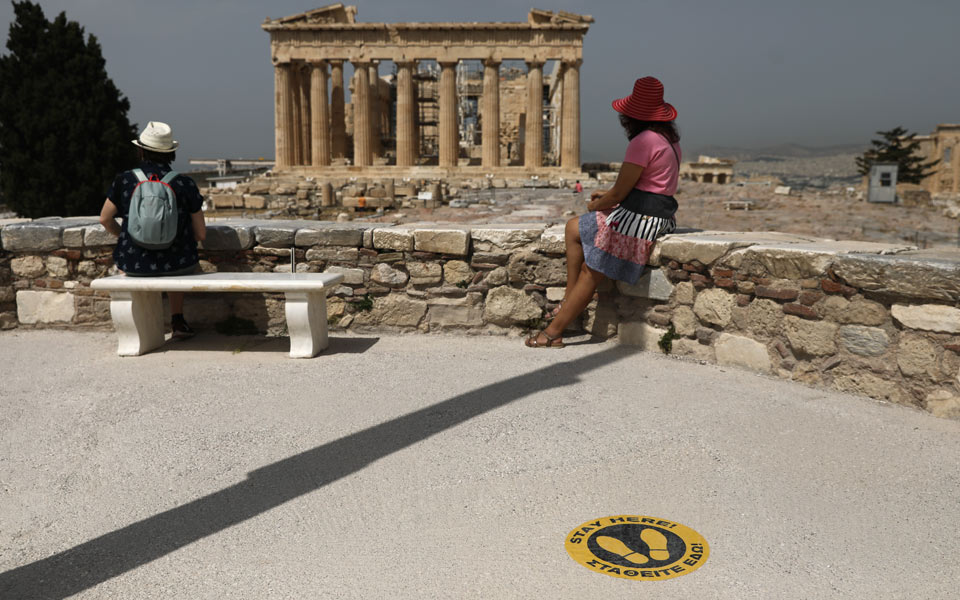
Floor markings encouraging social distancing are among the measures implemented at the Acropolis and other archaeological sites to prevent any spread of the Covid-19 coronavirus.
© Intime News
Know the Rules: The A-Z for Tourism in Greece in the Covid-19 Era
An a-z guide of all the new covid-19 measures in place at greek airports, hotels, restaurants, shops, beaches, cinemas and more..
Greece Is | June 20th, 2020
The Greek government has released an interactive color-coded map of Greece at covid19.gov.gr containing information regarding Covid-19 and the different measures put in place in order to limit the spread of the virus.
As of writing, the same set of measures and safety restrictions apply throughout the country.
All regional units have been set at Level C: The country is currently under lockdown , which means people who leave their homes must carry their ID or passport with them as well as a form (which is available via SMS, or which can be printed off/handwritten) indicating the reason for their outing. All lockdown movement forms and relevant instructions are available here .
In addition, a nightly curfew is now in operation from 21.00 to 05.00 during which movements outside of the home are only permitted for valid work-related reasons, emergencies and to take pets for short walks.
The lockdown will apply until at least November 30, 2020.
Last updated: November 13
AEGEAN AIRLINES
Greece’s leading air carrier has implemented a raft of changes as it prepares to fly the first tourists to Greece from abroad this summer. These include new health protocols at gates (eg contactless passport checks) and on board planes (eg. crews are regularly tested for Covid-19 and have undergone special training; snacks are prepacked and come with antiseptic wipes). Watch the video above to get a better idea of the new changes.
Additionally, Aegean is offering a “Hold my Booking” feature designed to offer greater flexibility to prospective travelers as they finalize their plans. With the new service you can keep a selected flight on hold at the same price for several days before you complete your booking. For domestic flights the service costs 3 euros and you can hold a booking for up to 4 days (service available up to 7 days before departure). For international flights the service costs 6 euros and you can hold a booking for up to 6 days (available up 10 days before departure).
As Greece opened up to tourism again, in addition to its Athens flights, Aegean Airlines relaunched international flights to and from Thessaloniki Airport “Makedonia” starting June 15.
The next stage for the resumption of international flights includes the connection of destinations abroad with regional airports, which will be permitted from July 1. Aegean is expected in the coming days to draw up the flight schedule out of its hubs in Irakleio and Hania in Crete and Rhodes, among others. By July 15 it is expected to serve 42 destinations abroad out of Athens and at least seven foreign destinations out of Thessaloniki.
The overall flying schedule when it fully matures is expected to represent 50% of that anticipated before the onset of the coronavirus pandemic.
Direct flights between Thessaloniki and Tel-Aviv are expected to resume once the restrictions on travel between Greece and Israel are lifted – this is expected from August 1 according to recent comments by the Israeli prime minister .
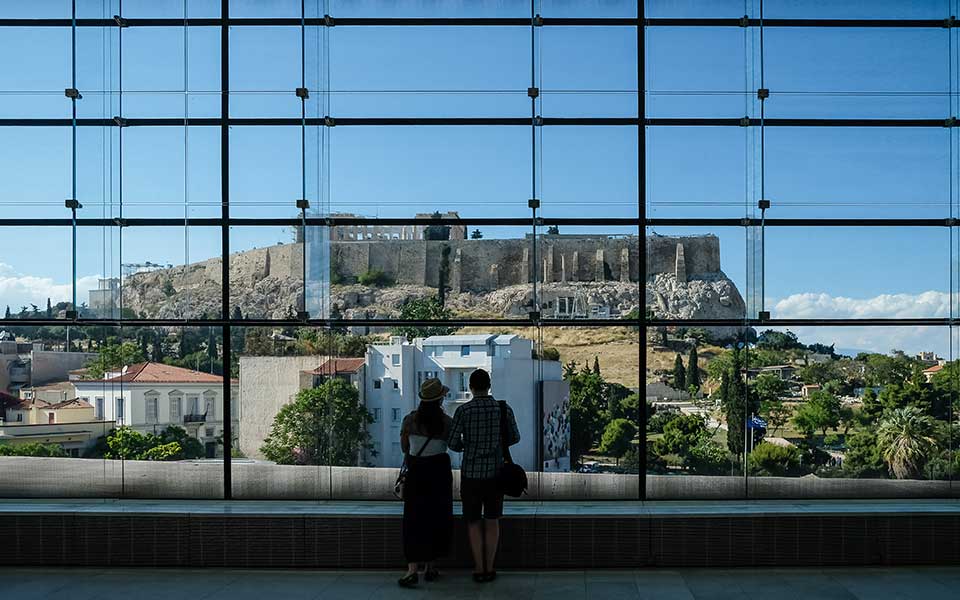
© Shutterstock
ARCHAEOLOGICAL SITES
Archaeological sites now operate on extended summer hours (08:00-20:00) to avoid large crowds from forming. In order to maintain the minimum 1.5m safety distance between people, the number of visitors allowed in at every archaeological site is limited, as is the number of visitors allowed to enter every hour.
Specific routes have been demarcated, the entrance and exit separated and plexiglass screens installed wherever needed and possible – for example, at the Propylaea on the Acropolis. The use of protective masks and alcohol-based sanitizers on site is strongly advised.
The tourism period in Greece officially began on June 15, with tourists able to fly to Athens and Thessaloniki airports. Direct international flights are now permitted as of July 1 to all other airports around the country, allowing travelers to fly directly to tourist destinations.
International flights are currently allowed from all EU+ countries except Sweden and the UK (flights from the UK will resume on July 15, it remains to be seen if the same will apply to Sweden). Additionally, international flights are open from 14 non EU+ countries . The list of non-EU+ countries from which flights are allowed into Greece is re-examined every two weeks.
As of July 1, the Greek government has implemented a new monitoring system: all travelers arriving to Greece by air, sea, or road are required to fill a Passenger Locator Form at least 48 hours prior to their arrival in the country. Passengers must provide detailed information on their point of departure, the duration of previous stays in other countries, and their address(es) while in Greece.
Some visitors arriving to Greece will be selected for using swab tests (which are mandatory for those selected). However all passenger will be allowed to move immediately on to their destinations (i.e. quarantine upon arrival no longer applies).
For more information see: Can I Travel to Greece Again?

AΤHENS INTERNATIONAL AIRPORT
The use of face masks is mandatory after entering the airport terminal; a mask must be kept on throughout a passenger’s stay in the airport areas, during boarding, and during the flight (domestic or international). Passengers should also be aware that they may be asked to temporarily remove their mask during security processes and identity checks. Hand sanitizer dispensers are available in over 300 spots at the airport, including the bathrooms.
Plexiglass panels have been installed for additional protection in areas where contact with employees is necessary such as ticket desks and information counters. To minimize waiting times, passengers are encouraged to select e-service options (web check-in) prior to their departure for the airport, as well as within the airport areas (self check-in, baggage-tag printing, drop-off baggage, e-parking). Seating in all waiting areas has been re-arranged to allow for safe minimum distances. The current recommendation is that every other seat be left vacant. However, families or couples traveling together do not have to keep this distance.
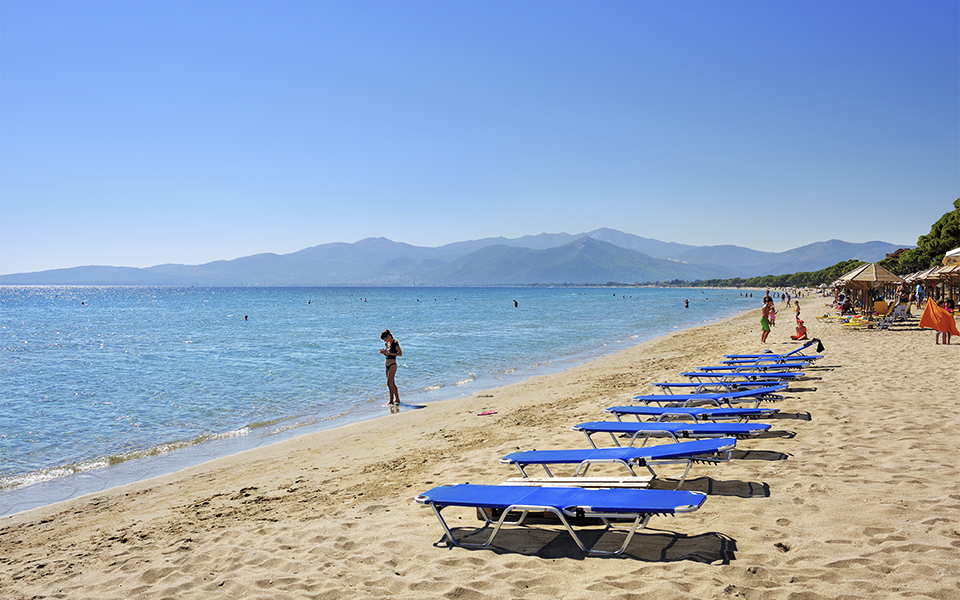
BEACHES – Organized with Beach Clubs
At organized beach clubs, a maximum of 40 people will be allowed per 1,000m2; an entrance/exit count will be carried out to make sure this measure is respected. A minimum distance of 4 meters must be maintained between individual umbrellas, each of which will provide shade for two sun loungers at most – this does not apply to families with children. Two sunbeds that are under different umbrellas cannot be placed closer to each other than 1.5m.
Placing a towel on top of sun loungers is mandatory and considered the responsibility of the user. The staff at organized beaches and beach clubs are required to disinfect sun loungers/chairs after every use. Additionally, they must regularly disinfect sanitary facilities and post a schedule of that cleaning for official review.
Team sports (such as beach volleyball) involving close contact are forbidden.
Beach bars and food trucks offering food and drink can serve items in a package (and continue to offer take-away services). Spaced out chairs and tables are allowed in café or bar space with customers seated at least 1.5 meters apart. Alcohol can be sold but cannot be consumed at the bar to prevent overcrowding.
The ban on playing music at organized beaches has been lifted. However, it is recommended for owners of bars and cafes operating in beach areas to avoid holding events that would cause overcrowding.
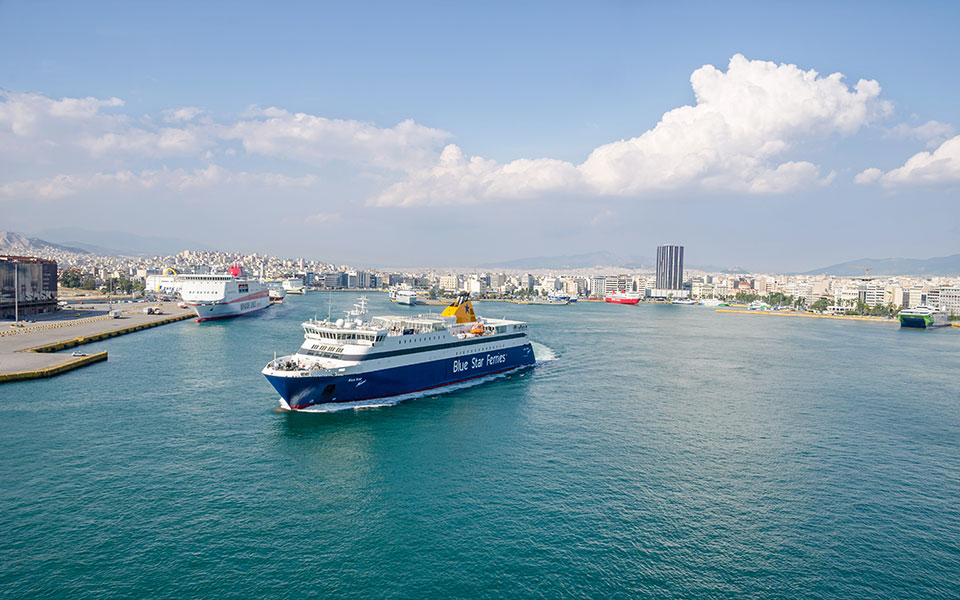
BOATS (Ferries)
Until August 31, boats (ferries) will be allowed to travel at 80% capacity – or 85% for boats with cabins on board. Passengers will be required to answer a series of questions and have their temperatures taken before boarding. Passengers who present symptoms or are deemed at risk of infection (e.g. due to exposure to a Covid-19 patient in the 14 previous days) will be refused permission to board the boat.
Passengers inside the boat will have to remain at a 1.5m distance from each other, and the number of aircraft-type seats will be reduced. Two persons maximum will be allowed in each cabin, except for families of up to 4 people, and people with disabilities traveling with companions.
The use of a mask on board vessels is mandatory, both inside and on the open-air decks. Crews have been trained to respond to potential coronavirus cases, and boats will be disinfected after completing each sea route.
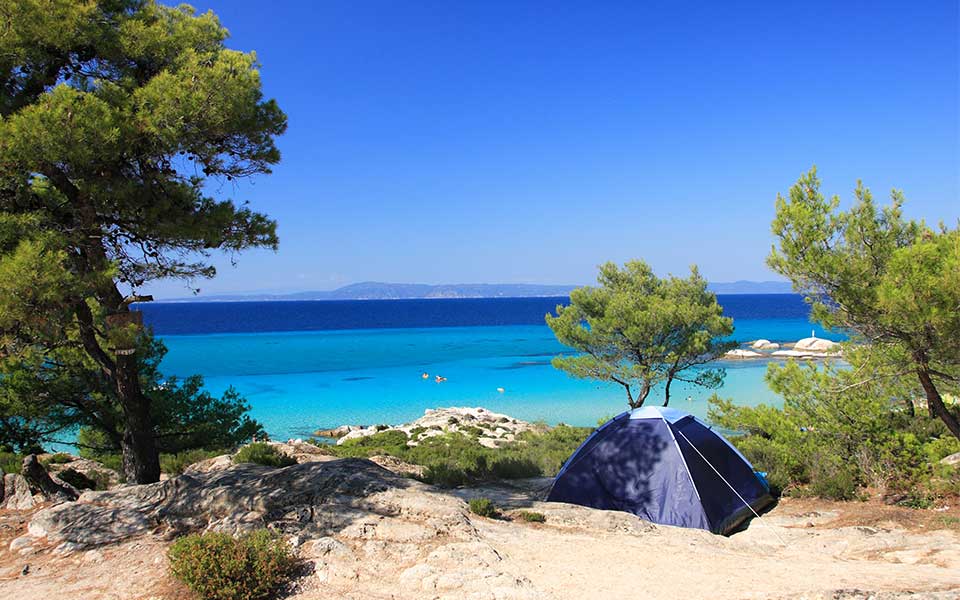
The “golden rule” of maintain a distance of at least 1.5m between people who don’t belong to the same family or friend circle and do not live under the same roof applies here, too.
Tents and camper vans must be at least 5 meters apart on the entrance/exit side, and 3 meters apart on every other side. Upon arrival, customers must agree to and comply with the instructions and safety measures – establishments reserve the right to refuse entrance to anyone refusing to cooperate.
The use of masks is advised in interior covered spaces. Entrance to the site, as well as passage through it and the use of the campground facilities will be restricted to customers only. All common-use areas and facilities, as well as rental equipment, will be thoroughly disinfected on a regular basis.

CHECK-IN/CHECK-OUT at HOTELS
Check-in and check-out times have been changed – check-out to 11:00 and check-in to 15:00. The added time between each check-out and check-in is necessary to ensure that each room is thoroughly disinfected between stays, and that the space is adequately ventilated.
You may see a plexiglass screen at the reception desk – their presence is at the discretion of hotel management. Hand sanitizers, on the other hand, are mandatory.
Other measures the hotel must perform include disinfecting all card keys after each stay. Wherever possible, you are encouraged to check in at an outdoor reception station. The use of electronic alternatives to check-in and check-out, such as Mobile Concierge apps, is preferable, as are electronic payments upon check-out. It is likely that any accounts, invoices or receipts will be sent to you via email. Cash will only be accepted under exceptional circumstances.
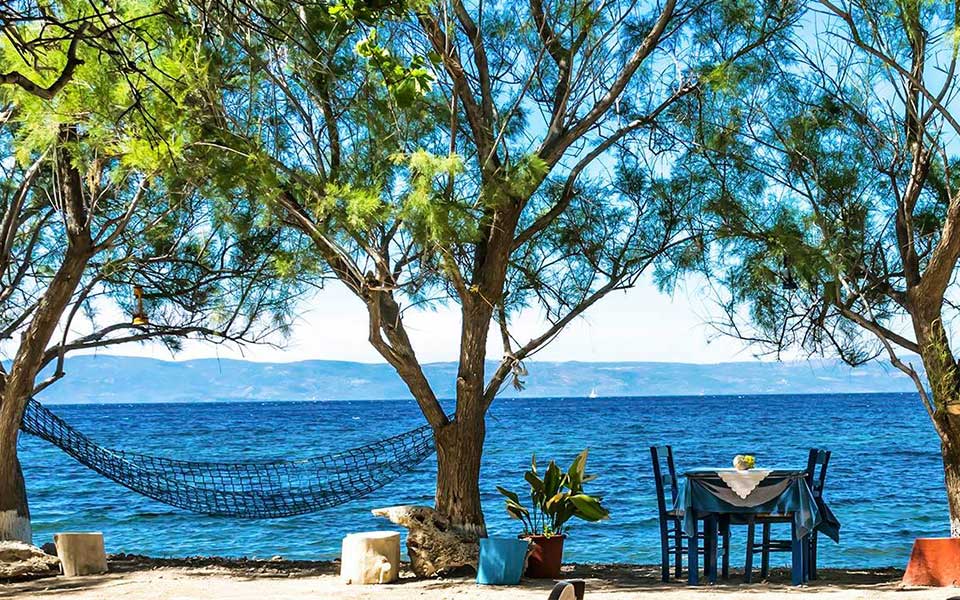
EAT & DRINK
Food & drink establishments as well as clubs must remain closed from midnight to 7 a.m.
Both indoor and outdoor seating is now permitted at restaurants across the country (although outdoor dining is still recommended where possible). Servers must wear face masks. The minimum distance allowed between tables ranges from 70cm to 170cm. A limit of 6 people per table has been set.
Information signs will remind people of individual hygiene rules and of safety measures applying to all spaces. Customers will be encouraged to make electronic transactions. Sanitizer gel will be available at cash registers; if the owner deems it necessary, a protective plexiglass screen will be installed, as well as markings on the floor to delimit safe distances for queuing.
At hotel buffets disinfectant will be provided for hands at the dining area’s entrance. Staff must make sure that it is used by customers. All hotels must install sneeze guards (protective food guards that protect buffet line entrées and sides from airborne contaminants). The food at the buffet will be served only by the hotel’s kitchen staff (who will be properly equipped with masks and gloves). The customer should not come in contact with the food or the utensils at the buffet.
It is recommended for food to be placed in individual packets in areas where staff is not serving.
Automatic coffee machines, juicers, etc., should only be used by the staff (who will be properly equipped with masks and gloves).
With regards to hotel bars only packaged individual side dishes are provided with drinks. Room service is encouraged at no extra charge.
EMERGENCY NUMBERS
The European Emergency Number is 112. For any Covid-19-related inquiries, dial 1135.
The fine for not using a mask where required is €150.
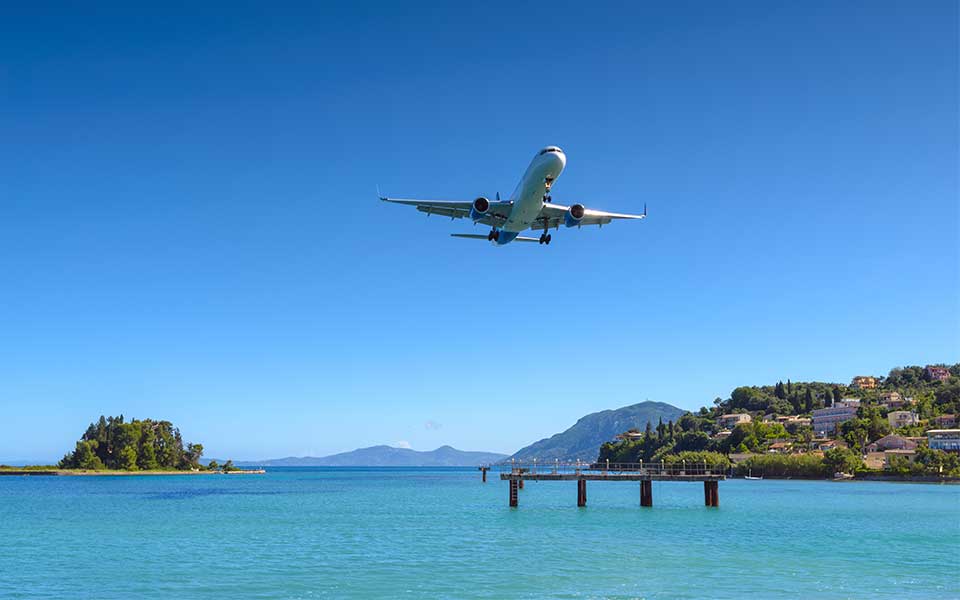
All of the country’s airports have opened for international flights as of July 1. See here for more information on international flights allowed into Greece.
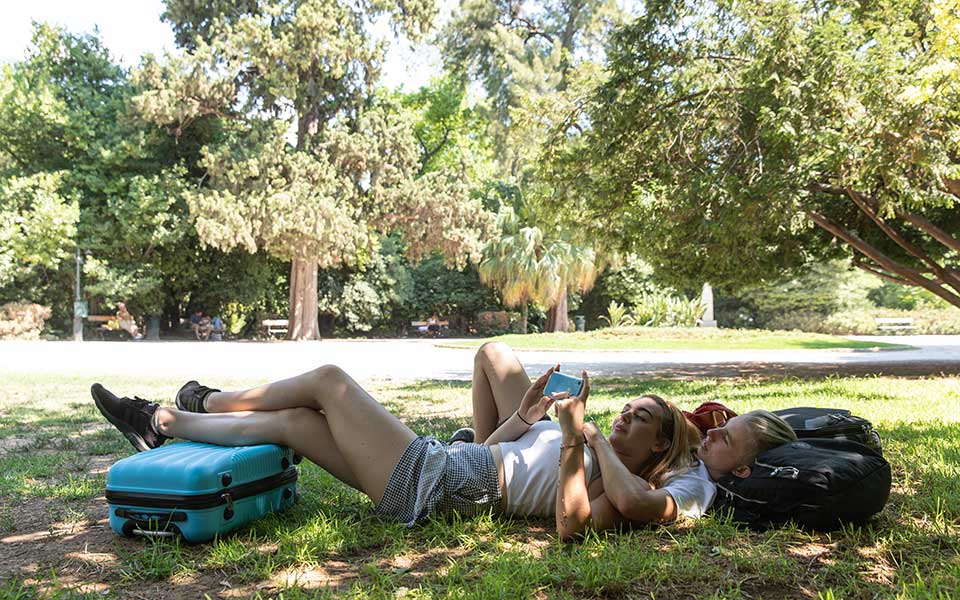
© Dimitris Vlaikos
GATHERINGS/ PUBLIC SPACES
The use of mask is mandatory in all outdoor spaces where the 1.5-meter safety distance cannot be kept – such as bus stops and public squares.
The use of mask is strongly recommended in all other outdoor public spaces.
The limit for both outdoor and indoor gatherings is set at 9 people.
A limit of 20 people has been set for weddings, baptisms, and funerals.
Additionally, people who are aged 65 and above are strongly advised not to leave home unless absolutely necessary, to avoid public transports, and to avoid contact with people outside their close family circle.
HAIRDRESSERS/BEAUTY SALONS
Hair and beauty salons operate by appointment only, with a minimum 2m distance between stations/chairs. The use of masks is mandatory for everyone, and employees a must wear disposable gloves as well. Working hours have been extended from 07.00 to 22.00 on weekdays and 07.00 to 21.00 on Saturdays.
As announced by the Greek government on June 29, all hotels must create designated “quarantine rooms” meant to host visitors displaying COVID-19 symptoms who do not require immediate hospital care. The government specifies that:
- establishments comprising up to 10 rooms are required to have 1 quarantine room,
- establishments comprising up to 50 rooms are required to have 2 quarantine rooms
- establishments comprising over 50 rooms are required to dedicate 3% of their rooms to that purpose.
Upon arrival, you’re advised to ask about the establishment’s policy in case of health incidents and about the medical facilities in the general area, including the public and private hospitals, Covid-19 referral hospitals, and pharmacies. Hotels are advised to provide printed brochures with basic health instructions translated into English, French and German, as no such electronic app currently exists.
HOUSEKEEPING at HOTELS
Housekeeping will be less frequent during stays, and turndown services have been abolished. Towels and sheets will be changed upon customer request only. As you enter your room for the first time, look for the sign that will tell you when and how your room was last cleaned.
Hotel owners have the choice between two cleaning options: they can either clean it in the usual way after a customer leaves and keep it closed for 24 hours until the next one comes, or perform a thorough cleansing and disinfection using a steam cleaner, UV rays or other such equipment on all room and bathroom surfaces.
Hotel owners have been advised to get rid of decorative objects such as throw pillows. Getting rid of reusable items likely to be shared, such as menus and magazines, is recommended as well. Disposable covers will be placed on TV and air conditioner remote controls. Upholstery fabric must be cleaned with a vapor steam cleaner – at temperatures exceeding 70°C.
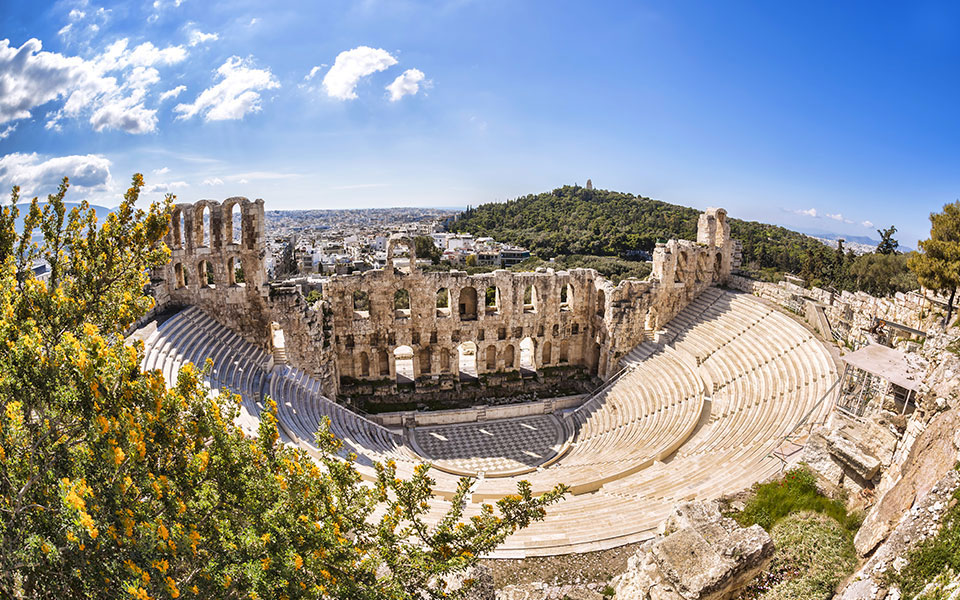
LIVE PERFORMANCES
All live performances have been suspended for the time being.
The suspension of all live theater performances has been announced starting September 24.
Additionally, discotheques and clubs with live music will remain closed until the end of the month (30/09.)
The use of disposable or reusable fabric masks is mandatory in all indoor spaces, including places of worship (churches), as well as outdoor spaces where safety distances can not be guaranteed. Passengers on ferries and taxi boats are required to wear a mask at all times, even on the outside decks.
Exempt from the rule are customers at restaurants and people with respiratory problems. Those found to be in violation of face mask rules face a fine of 150 €.
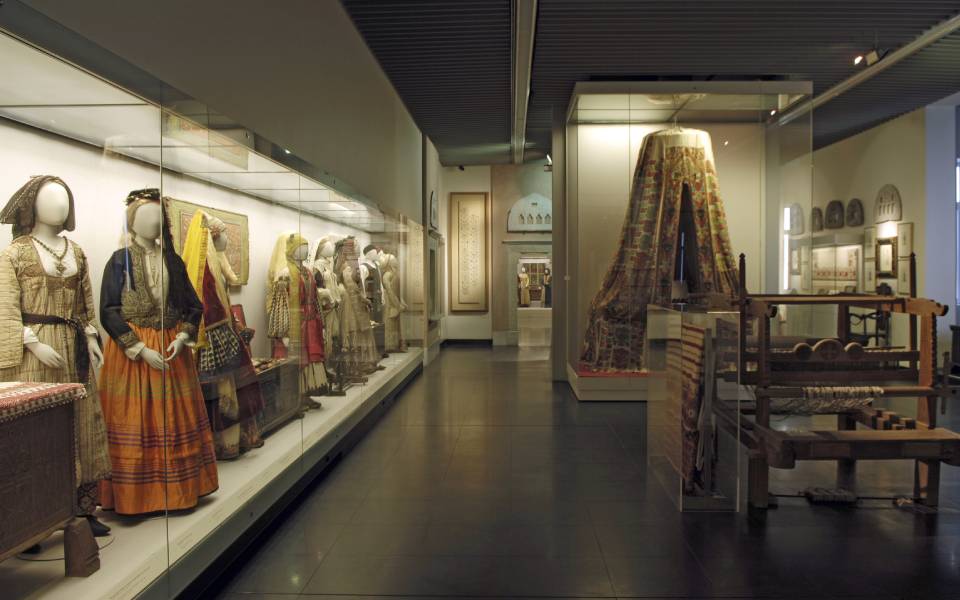
MOVIE THEATERS
Operation of indoor cinemas is suspended for the time being.
Open-air theaters operate with new safety rules, the most important one being the reduction of the number of seats to 60% of the theater’s capacity with space between every two seats and 1,5 safety distance during the entrance and exit of the audience. The use of masks is mandatory for spectators upon entering and exiting the theater as well as during the projection.
Movie theater snack bars will be open before and during screenings, but there will not be any intermissions (customary in Greek cinemas) to avoid overcrowding.
It is likely that ticket offices will open two hours prior to movies’ start times, and stop ticket sales 15 minutes before so that people have time to properly take their seats while maintaining social distancing.

Museums reopened on June 15. Visitors will have to keep a distance of 2 meters between each other and are encouraged to wear protective masks and make their transactions with a credit card. Museums can only use air conditioning where these are open-circuit (i.e. allow fresh air to enter the building). A limited number of people will be allowed entry every hour.

© Perikles Merakos
PANIGYRIA (TRADITIONAL FESTIVALS)
The popular local village festivals known as “panigyria” have been officially prohibited in all of Greece until August 31 to avoid the risk of Covid-19 spreading among attendees.
PRIVATE BEACHES @ HOTELS & RESORTS
Seats of any kind must be placed in such a way that the distance between two people sitting under two different umbrellas is no less than 3 meters in any direction. People will be discouraged from placing their towels or beach mats within the “safe distance areas”. Towels large enough to cover all of a seat’s surfaces will be provided and disinfected after every use.
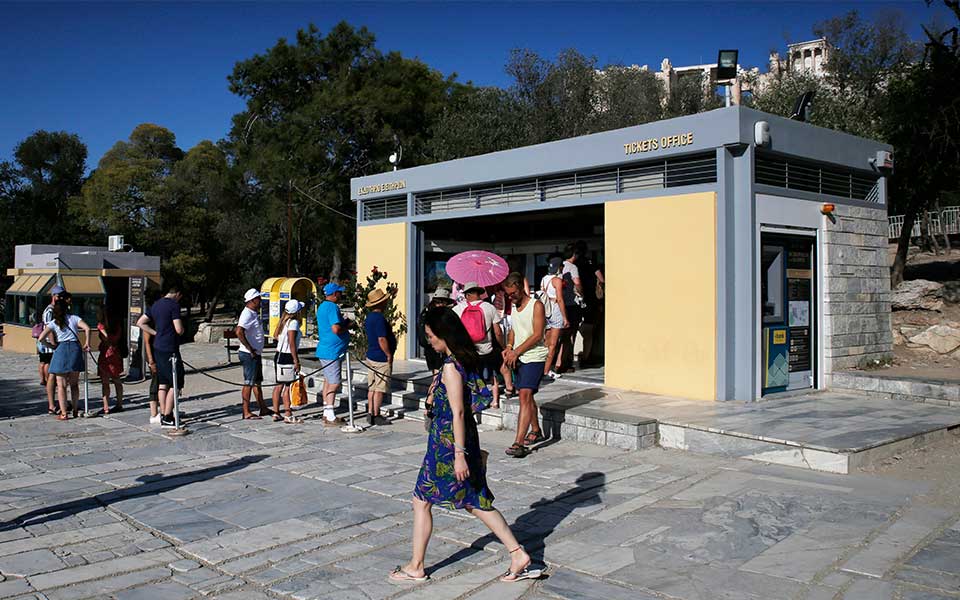
Greeks have recently shown remarkable discipline in complying with the “queuing regulations” now in place (okay, with a few exceptions). The main rule to observe is to remain at least 1.5 – 2 meters from others in the queue. In many shops and other areas floor markings have been placed to aid with physical distancing. The use of masks is mandatory in queues where the safety distances cannot be kept.

Rental cars will be disinfected between uses by different clients. Additionally, the number of passengers allowed will be restricted: For cars with up to seven seats, only the driver plus three passenger will be allowed in the vehicle. For eight or nine-seat vehicles, the driver will be allowed to carry up to five passengers. These restrictions do not apply for families with children.
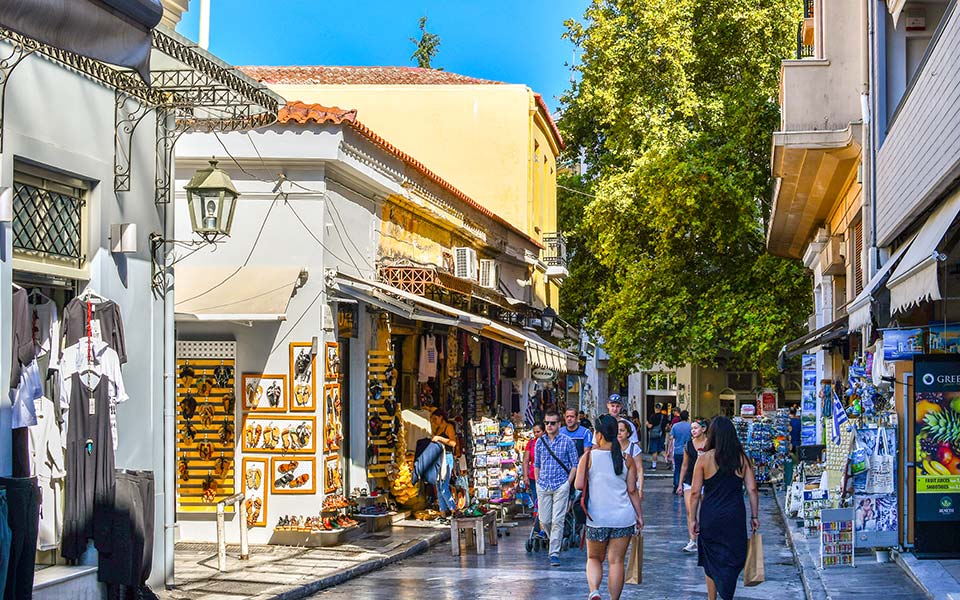
© Shutterstiock
SHOPPING/ MARKETS
You may need to wait for a few minutes before entering many shops. Smaller ones up to 20 m2 will be able to host a maximum of 4 people at the same time (including employees). Stores from 20 to 100 m2 can have a maximum of 4 people inside plus one person for every additional 10 m2. Stores 100 m2 and above will be able to welcome a maximum of 12 people, plus one more person for every additional 15 m2. Distances of at least 1.5 meters must be maintained by customers and employees, but as of July 7, the use of masks is no longer mandatory.
Public markets operate at 50%. Masks are mandatory for producers as well as consumers. Stands are placed at a 3-meter distance from each other. Additionally, two markets that are located in one area may now operate during the same week.

SWIMMING POOLS
Sunbeds must be placed so that two people sitting under two different umbrellas, or two people staying in two different rooms maintain a distance of at least 2 meters in every direction. Every time a customer leaves, seats, tables, security boxes, menus and any other item the next customer may use must be disinfected. Pools are advised to provide towels covering beds’ surfaces as well as to clean every sunbed / chair between uses. It is recommended that cushions and fabric coverings be removed from sunbeds.
The use of indoor swimming pools is forbidden until further notice. Opaque dividers are recommended for swimming pool showers, to allow people to thoroughly wash before entering and after exiting the water. Swimming pools are advised to provide all necessary amenities (soap, shower gel, etc.) as well as antiseptic gel by the shower entrance
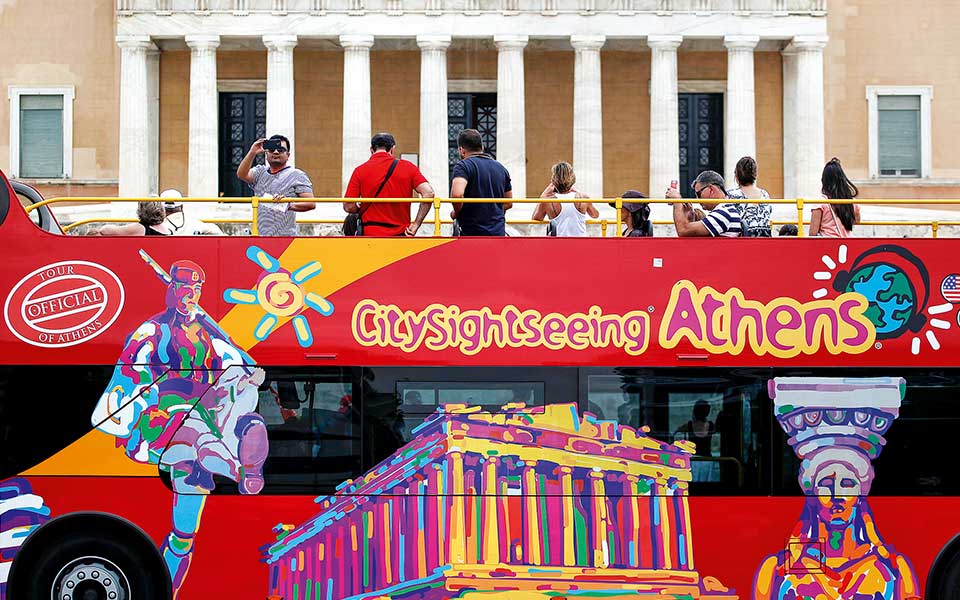
© AP Photo/Petros Giannakouris
All tourist buses are allowed to operate at up to 50% capacity. All passengers must wear protective masks on board. All tour buses must provide hand sanitizer by the entrance. Companies are advised to install transparent protective dividers in buses between the driver and the passengers. On special open-air tourist buses, at stops passengers will only be allowed to embark after all those getting off have done so. After each route, the cleaning of surfaces and high contact spots (e.g. handles) is advised.
TRANSFER CARS
Customer transport will be allowed via private transfers only. Vehicles with up to 5 seats can carry no more than one passenger plus the driver. Companions of people with disabilities are exempt from this rule. 6-7 seat cars can carry the driver plus two passengers, while 8-9 seat cars can carry up to 3 passengers. The passenger limit will not apply if the passengers are parents with their children. The driver and passengers must all wear masks.
VISITORS @ HOTEL ROOMS
Rooms in hotels and resorts, as well as tents and campers at campsites, are for customer-use only. No visitors will be permitted.
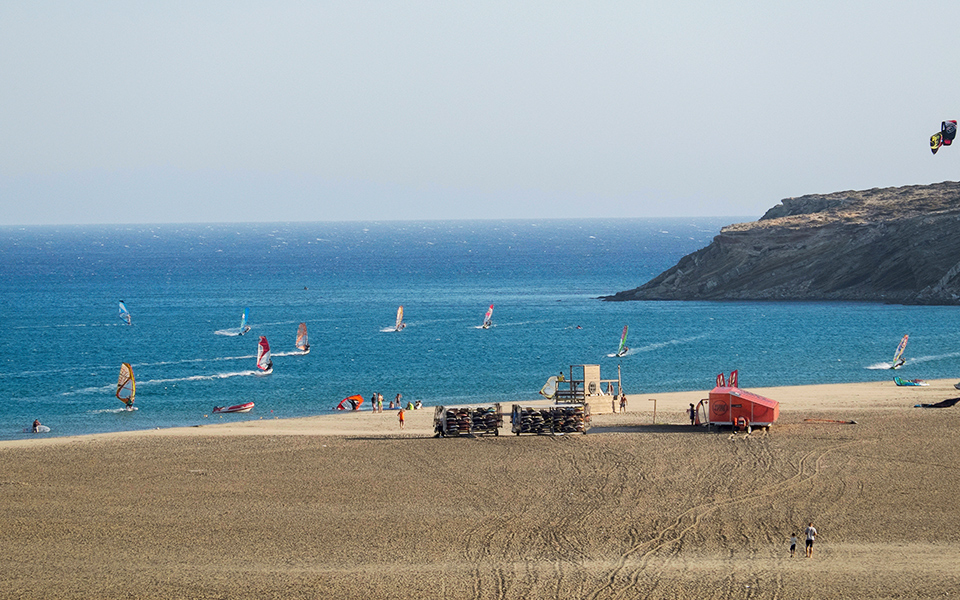
WATERSPORTS
Anything that comes in contact with customers – every surface, life jacket, wetsuit etc – must be cleaned and disinfected between each use. Only members of the same family, or individuals able to maintain a 2m distance between them, will be allowed on any single piece of equipment (such as a canoe or inflatable ride).
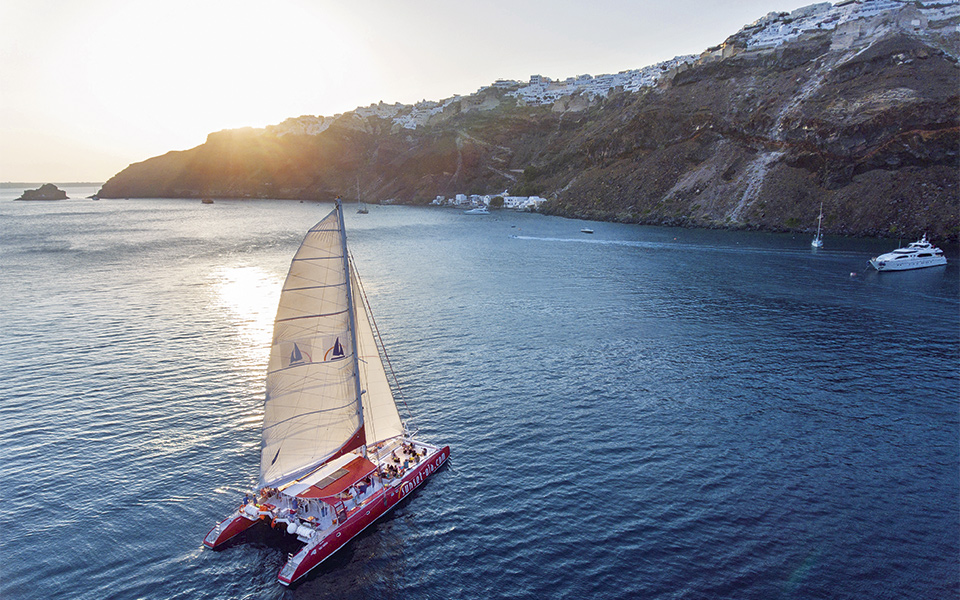
Faraway destinations where medical help is scant are to be avoided. The maximum number of passengers allowed on board will depend on a boat’s size and the number of passengers allowed by its license. On every boat there will be a book with all passenger details and their hours of embarking and disembarking, which must be available in written or electronic form for inspection by port and health authorities. The only people allowed on board will be the people who have boarded from the start of the journey. No other passengers or visitors will be allowed on board at intermediate stops.
Additionally, a log must be kept to monitor everyone’s health on board: all crew and passengers will have their temperatures taken once daily and logged. If somebody starts developing Covid-19 symptoms on board – a cough, fever, shortness of breath – this must be logged in the book and a prearranged plan for dealing with a suspected coronavirus case must be activated. There must be sufficient quantities of antiseptic, disinfectant, cleaning supplies and personal protection equipment for all on board.
The God of philoxenia (hospitality) wishes you a great, safe holiday in Greece!


SUBSCRIBE TO OUR NEWSLETTER
Thank you for signing up.

Ionian Islands
Zakynthos: more than meets the eye.
Hidden beaches, verdant plateaus and stunning mountain villages: this popular...

The Sociology of Paradise: Why Mykonos Became So Popular
A billionaire rubbing shoulders with a fisherman, a sweet young...

One More Trip to Greece
Before Covid-19, retirement homes in Sweden traveled to Greece for...
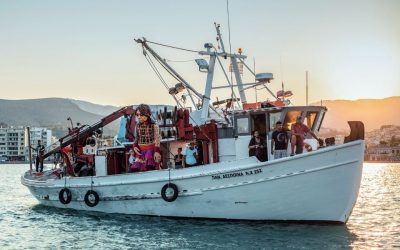
Amal the Puppet Child Refugee Arrives in Greece
Raising the plight of unaccompanied child refugees, "The Walk" is...
Share This Page
Greece Is Blog Posts
An ode to local products.
BY Yiouli Eptakili
No more avocado toast and croque-madames. From Thessaloniki to Crete...
read more >
How Can Greece Become a Gastro-Tourism Destination?
It’s about more than just taking a trip...
Leaving Room in Greece for Everyone
BY Greece Is
Labor Day, this year September 5, marks the...

Most Popular

greek fried bread: tiganopsomo from evia
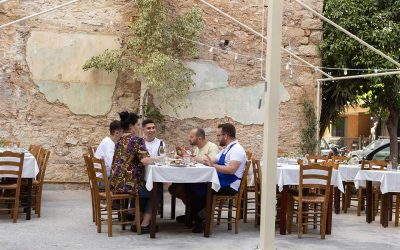
athens insider: coolest new hangouts for the summer

curated luxury in mykonos: discover simple caracters fashion boutique

greece’s tourism faces challenges as heat waves persist
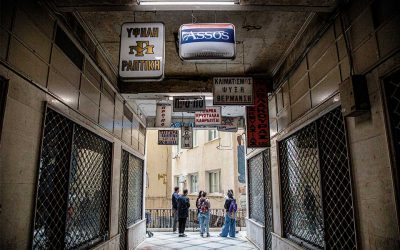
hidden city: discover athens’s arcades

geco by gatsby: athens’ ideal spot for food enthusiasts and culture seekers

More Information
- Distribution
Publications
- Athens Summer 2015 Edition
- Santorini 2015 Edition
- Democracy Edition
- Peloponnese 2015 Edition
Sign Up for Premium Content, Special Offers & More.
- Terms of use
- Privacy Policy
Social Media

© 2024 GREECE IS, NEES KATHIMERINES EKDOSEIS SINGLE-MEMBER S.A.

Powered by: Relevance | Developed by: Stonewave

- Private Day Trips
- Accommodation
- Restaurants
- Outdoor Activities
- PRIVATE CRUISES
- OUTDOOR ACTIVITIES
- LUXURY CAR RENTAL
- CAR & DRIVER SERVICES
- RESTAURANT CONCIERGE
- PRIVATE SECURITY & BODYGUARDS SERVICES
- PRIVATE FLIGHTS
- PERSONAL PHOTOGRAPHER
- Thessaloniki City Private Tours
- Private Day Trips From Thessaloniki
- Private Day Trips From Athens
- Shore Excursions in Cyprus
- Shore Excursions in Thessaloniki
Protocol for Arrivals in and Departures from Greece
- Travelling in Greece
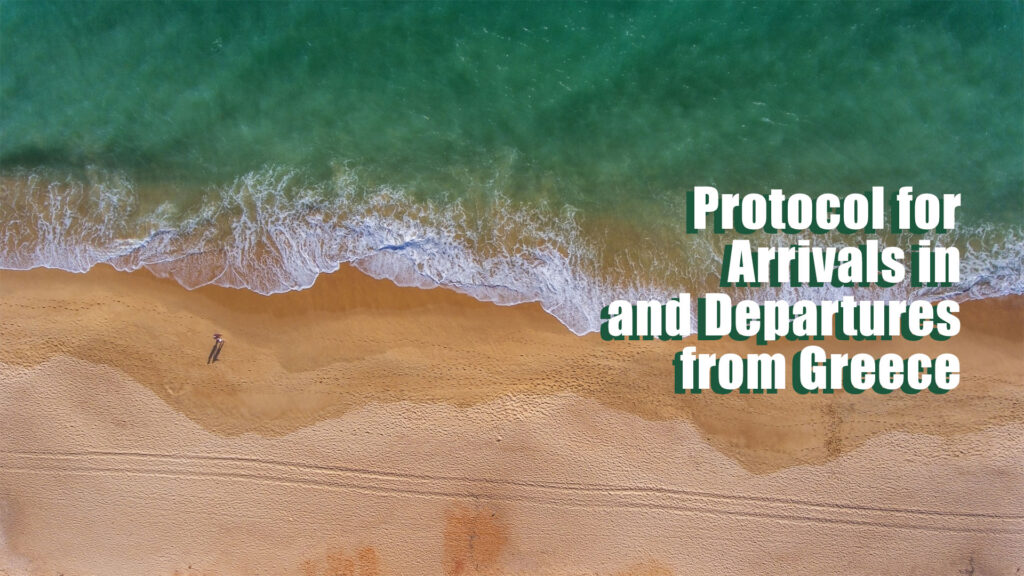
Protocol for Arrivals in and Departures from Greece Welcome to Greece!
All travellers must complete their PLF until the day before entering the country and leaving the country, providing detailed information on their point of departure, the duration of previous stays in other countries, and the address of their stay while in Greece. In case of multiple stays, they are required to provide the address for the first 24 hours at least. One PLF should be submitted per family.
- Travellers will receive a confirmation email upon submission of the PLF.
- Travellers will receive the PLF with their unique Quick Response (QR) code on the day of their scheduled arrival in Greece and will be notified via email (the QR code will be provided in a link in the confirmation email).
- Travellers boarding or embarking on the previous day of the arrival will be allowed to do so upon showing the confirmation email, since they will receive their QR code during their flight or voyage.
The PLF can also be found on the Visit Greece app and at travel.gov.gr. It is strongly recommended that all visitors download the Visit Greece app (GDPR compliant) for free, prior their arrival in Greece.
Dear traveler
We welcome you to Greece and wish you enjoy a wonderful, unforgettable holiday experience. On behalf of the Greek Government and the Greek Ministry of Tourism, we would like you to know that we have made every effort humanly possible for you to be and feel safe in our country. Your health is our absolute and non-negotiable priority.
Greece is opening its borders gradually, in a safe and doable manner. The first stage, from the 19th of April, has some limitations compared to the generalized opening. In the following paragraphs, we describe what applies as of the 19th of April. Information relating to the generalized opening, which will be affected as of the 14th of May, will be announced in due time.
For the protection of your own health, your family’s, as well as that of all those involved in offering you a safe hospitality, the following general principles regarding the health protocols apply in Greece as of the 19th of April:
- Every traveler coming to Greece from abroad should have a negative PCR test from a diagnostic laboratory. The test has to be conducted no later than 72 hours before arrival. This test is mandatory for all tourists (including children over the age of 5), regardless of the epidemiological situation prevalent in the country of departure.
- If the traveler has completed his/her vaccination (i.e. 14 days have elapsed since the last vaccination, depending on the doses required) and is in a position to confirm it by presenting the relevant vaccination certificate, then proof of a negative test is not required.
- Vaccination certificates with vaccines Sputnik, Sinovac, etc., which have not been approved by the European Medicines Agency (EMA) also exempt visitors from the obligation of a negative PCR test. For the list of acceptable vaccines, see here: Pfizer BioNtech, Moderna, Astra Zeneca/Oxford, Novavax, Johnson + Johnson/Janssen, Sinovac Biotech, Gamaleya (Sputnik), Cansino Biologics, Sinopharm
- Every traveler who arrives in Greece, regardless of the certificate he carries, may undergo a random health check. If selected, the check is mandatory. Otherwise we reserve the right to refuse entry in the country. The selection is made through a targeted sampling system, based on the EVA system used in the summer of 2020.
- Attention: We clarify that the entry of tourists in Greece is not subject to vaccination. The presentation of a vaccination certificate greatly facilitates the formalities on arrival. However, in no case is a vaccination or an antibodies certificate considered a “passport”.
- The countries from which entry is allowed, under the aforementioned conditions, without the requirement for isolation are: EU +Schengen, USA, UK, Israel, Serbia, UAE, Australia, New Zealand, South Korea, Thailand, Rwanda, Singapore and Russia.
- Non EU citizens are strongly advised to choose direct flights to Greece. In other cases, travelers should abide by the stop-over country requirements.
- Passengers are allowed to enter the country through 9 airports (Athens, Thessaloniki, Heraklion, Corfu, Rhodes, Kos, Chania, Mykonos, Santorini).
- Travelers are allowed to enter from the land borders of the country through the land entry gates of Promachonas and Nymphaio.
- In particular, permanent residents of Russia are allowed to enter the country up to a maximum of four thousand (4,000) persons per week and only by air. Moreover, travelers from Russia need to cumulatively have completed their vaccination (i.e. 14 days have elapsed since the last vaccination, depending on the doses required) and have a negative PCR test.
OBLIGATIONS FOR EVERY VISITOR IN GREECE
Before arrival:
- Every tourist must fill in the special PLF (Passenger Location Form) no later than 23:59 of the day before arriving in Greece. This is done here .
Before departure, the traveler must ensure that he/she has some kind of certification of his health condition. The alternatives for that are as follows:
- PCR test from a laboratory, maximum 72 hours before entry.
- Vaccination certificate issued by an appropriate authority.
All certificates must include the critical information in English and the full name must match with that of the passport or other travel document.
On arrival:
For travelers arriving in Greece, the following are provided:
- Sampling RAPID antigen tests at the entrance gates, the selection of individuals drawn from a targeted sampling system, based on the EVA system used in the summer of 2020.
- Mandatory isolation for tourists who have tested positive for SARS-Cov-2, following a sampling test. In this case, the travelers and their escorts are transported to quarantine hotels and undergo further PCR tests to confirm the initial diagnosis. Guests will stay in seclusion hotels for at least 10 days, and they will undergo new tests again. The expenses of the accommodation in quarantine hotels are covered by the Greek state.
Compliance with the health protocols during tourist transport and throughout your entire hospitality in Greece is the decisive factor that will allow for all of us to stay safe and return to our normality. We ask for your understanding and apologize in advance for any additional inconvenience. Thank you for the cooperation, thank you for choosing our country for your vacation and we look forward to welcoming you to Greece.
QUESTIONS AND ANSWERS FOR THE OPENING OF TOURISM 2021
Greece is ready to welcome visitors from abroad again, applying advanced health protection protocols. In 2021, Greek Tourism is ready to operate with the maximum safety possible, for tourists, employees and every person involved in the provision of tourist services. First of all, isolation (quarantine) for visitors from abroad is no longer required. However, entry into Greece will be allowed under the following conditions: – By presenting a vaccination certificate issued by an appropriate body in the traveler’s country of origin. – Instead of a vaccination certificate, the tourist can show a negative PCR test conducted up to 72 hours before traveling. – At the same time, 24 hours before traveling, every tourist must have completed the special PLF document. – Upon entering Greece, visitors will undergo targeted tests. In the event of a positive result, meaning that the traveler who was tested is ill with Covid-19, he/she will be temporarily accommodated in an isolation hotel. If a positive incident is detected following a sampling test at the land borders, then entry into the country may not be allowed.
Employees in the Greek tourism sector are vaccinated, according to government planning. Also, until the date of their vaccination, these employees are obliged to undergo a weekly test. It is suggested that the testing is even more frequent, in order to have timely isolation.
Greece recognizes every visitor who produces a vaccination certificate with an anti- Covid 19 formula from third countries, that is outside the EU and USA, as vaccinated. For the list of acceptable vaccines, see here: Pfizer BioNtech, Moderna, Astra Zeneca/Oxford, Novavax, Johnson + Johnson/Janssen, Sinovac Biotech, Gamaleya (Sputnik), Cansino Biologics, Sinopharm
In the first phase of the opening of Greek Tourism, flight restrictions from EU countries will be lifted, as well as from a limited number of other countries (USA, UK, UAE, Serbia and Israel, Australia, New Zealand, South Korea, Thailand, Rwanda and Singapore). Furthermore, our country will initially welcome flights only at certain airports (Athens, Thessaloniki, Rhodes, Kos, Chania, Heraklion, Santorini, Mykonos and Corfu). From mid-May onwards, in the framework of the general opening of the tourism industry, all international airports in the country will be allowed to accept flights from abroad.
Two entry stations from Bulgaria (Promachonas and Nymfaia) will operate during the initial phase of the opening.
As of 19/04/21, the quarantine will be lifted for those who arrive by ferry. Initially, at the main entrances (Patra, Igoumenitsa) and subsequently at all the rest.
As long as travel across counties is prohibited, guests will be able to travel from the airport to the lodging they have booked with their hotel voucher.
During their stay in Greece, visitors must also follow the measures that apply to all Greek citizens.
In all tourist activities, tourist transport and tourist visits to other places of interest, the same protocols as those in 2020 will apply, with some small adjustments. These protocols have proven to be effective, and will be updated according to epidemiological conditions. The Ministry of Tourism and the Hotel Chamber of Greece will provide certification to all lodgings that apply these protocols. Moreover, training material will be provided to the employees of these businesses, in order to ensure the correct application of all health and safety measures against Covid-19.
The plan for the opening of Greek Tourism provides for the existence of specific isolation (quarantine) hotels near each entrance gate, as well as in other strategic points nationwide. This way, an adequate safety net for case management will be in place, combined with an early detection upon the arrival of tourists from abroad.
Children under the age of 5 will not be required to undergo a PCR test.
The departure and arrival of yachts (except those coming from Albania and Turkey) will be allowed from the 3rd of May and onwards, with some restrictions, while the same terms and conditions will apply both for Greek and foreign citizens
By May 3rd , blue cruising will be allowed, i.e. cruising without intermediate stops in ports during the trip. Full opening, on May 14th, will lead to the complete removal of cruise restrictions, always enforcing very strict protocols that will apply to these activities.
It is possible to perform PCR or antigen tests directly at the place where each guest stays, if the guest needs a test for returning home. This makes it easier for every tourist to be consistent with his/her obligations in order to safely return to his/her country.
Conferences will take place after May 15th as per normal, provided that all health protocols, which have been determined by the health committee, are followed.
Hello Thessaloniki
- Protocol for Departures
- No comments yet.
Add a comment
Leave a reply · cancel reply.
You must be logged in to post a comment.
- • Restaurant Concierge
- • Private Cruises
- • Accommodation
- • Rent A Car
- • Outdoor Activities
- • Health & Beauty
- • Wellbeing & Wellness
- • Cafe Bars
- • Nightlife
Top Private Day Trips
- • Meteora Monasteries
- • Edessa Waterfalls & Pozar Thermal Spa
- • Mount Olympus & Dion Museum
- • Metsovo Traditional Village
- • Zagorohoria & Vikos Canyon
- • Tzoumerka, Epirus
- • Kavala & Archaeological Museum of Filippoi
- • Kassandra Peninsula of Halkidiki, Private Round Tour
- • Sithonia Peninsula of Halkidiki, Private Round Tour
- ...Find More Destinations
- Thessaloniki Airport Transfers
- • Private Day Trips
- • Private Sailing Cruises
- • Book A Table
- • Rent A Car & Transfer Services
- • Jet Charter
- • Airport Parking Services
- • Personal Photographer
Συνεργαστείτε Μαζί Μας
Γίνετε συνεργαζόμενη επιχείρηση του VIP Club του Hello Thessaloniki!
Privacy & Policy & Terms
- General Privacy & Policy
- Terms & Conditions
- Shopping Privacy & Policy
LUXURY CONCIERGE & PRIVATE TRAVEL SERVICES
Life Activities Single Member PC
Registration Code Number: 155899506000
Hello Thessaloniki Awards

- Share via...
Privacy Overview
Product Enquiry
Your Name (required)
Your Email (required)
Date (required)
Your Message
I' ve read and I agree with Privacy Policy
13 things to know before you go to Greece and the Greek Islands

Mar 6, 2024 • 8 min read

These top planning tips can help you prep for a trip to Greece, from health and safety to local etiquette © EMS-FORSTER-PRODUCTIONS / Getty Images
Get out your bucket list; it’s time to cross off a major line item: Greece .
The fabled land remains tops for culture , food, outdoor travel, art and, of course, beaches and islands . As part of the border-free Schengen Area, it’s also incredibly easy to visit for many travelers worldwide. From advance booking to local etiquette – and health and safety issues when you're there – here's everything you need to know to plan a memorable trip to Greece.
1. Choose your season wisely
Your experience in Greece will be wildly different depending on when you visit . Summer is tops for action, family fun, and swimming in the Mediterranean Sea, but prices are at their highest and pre-booking is necessary for everything since it’s all so popular.
The shoulder seasons (spring and autumn) are a delight – prices are lower, and rooms and resources are more readily available. Winter offers a moody and budget-friendly retreat, great for walking, hiking and sedate travels where you will often be the only visitor around. Bear in mind that some businesses will shut down completely during the low season.
2. Prioritize your wishlist and make a plan
Do you want a grand tour, taking in the not-to-be-missed highlights all over Greece, or would you prefer to focus your time on exploring your favorite islands or regions, like the Peloponnese ?
The best way to choose from the dizzying array of options on offer is to focus on what is important to you – relaxing on beautiful beaches, learning more about Greece's fascinating history and culture , museums and archaeology, off-the-beaten-track wildlife, or partying until dawn – and plan accordingly.

3. Find the perfect island or region for you
Greece merits multiple trips as every island offers something different , and each of its regions is equally dazzling – you're never going to see everything on your first visit, and you'll ruin your trip if you pressure yourself to do just that. Also, don’t be fooled that the biggies are the only islands worthy of your attention. Though Mykonos , Santorini and the major names have plenty to offer, lesser-known islands (there are hundreds!) like Amorgos or Kythira are also a delight. They've also got the added bonus of smaller crowds and lower prices if that's a key consideration for you.
4. Athens isn't the only gateway to Greece
In many cases, you will find it useful to transit in or out of Greece via Athens , as its airport has connections with numerous international destinations, and the city itself is a gem . However, there are other international airports around the Greek mainland (such as in Thessaloniki ) and on some major islands (such as Mykonos , Santorini and Corfu ).
If you need any internal flights to get to your destination of choice, it's worth checking the price of these individually. Due to government subsidies, it can work out significantly cheaper to book each part of your Greek itinerary separately from your international flights.
5. Book everything in advance during peak season
In peak season , prices are high, and demand for car hire, accommodations and ferry tickets is even higher – this is not the time for ad hoc bookings on the fly. Greece is an incredibly popular summer destination, and the best options get snapped up well in advance.

6. Roads in Greece are for confident drivers
No one who has traveled on Greece’s roads will be surprised to hear that the country’s road fatality rate is one of the highest in Europe. Overtaking is listed as the greatest cause of accidents. Heart-stopping moments aside, your own car is a great way to explore off the beaten track if you are confident in your driving and keep a few key points in mind.
- The road network has improved enormously in recent years; many roads marked as dirt tracks on older maps have now been sealed, and a lot of the islands have very little traffic.
- There are regular (if costly) car-ferry services to almost all islands.
- Greece is not the best place to initiate yourself into motorcycling. If you're not confident on a motorbike, it may be best to park this option until you have more experience.
- All the big multinational car-rental companies are represented in Athens, and most have branches in major towns and popular tourist destinations. The majority of islands have at least one outlet.
7. Greece is not very wheelchair-friendly beyond Athens
Access for travelers with disabilities has improved somewhat in recent years, but the majority of accessible sights, hotels and restaurants tend to be located in Athens. While improvements are on the horizon for beach access, much of the rest of Greece remains inaccessible to wheelchairs, and the abundance of stones, marble, slippery cobbles and stepped alleys create frustrating barriers for those with mobility issues. People who have visual or hearing impairments are also rarely catered for.
Careful planning before you go can make a world of difference. There are specific resources online that provide links to local articles, resorts and tour groups catering to tourists with physical disabilities.
8. Pack the right kinds of clothing
Athenians are well-dressed, and the younger crowd is trendy, so keep your smart clothes for the urban catwalk of clubs and bars. Nevertheless, in Athens and other metropolises such as Rhodes , Thessaloniki and Iraklio , everyday attire such as shorts or jeans and casual tops are just fine.
Bars or fashionable restaurants require more effort – the scene is stylish rather than dressy. Think tops and trousers rather than T-shirts and cut-offs. In out-of-the-way places, you can wear casual clothing, and in summer, the heat will make you want to wear the least amount of fabric you can get away with – bring quick-drying tank tops and cool dresses.
Sturdy walking shoes are a must for the cobbled roads, and proper hiking boots are key if you're exploring the countryside on foot . It's respectful to cover up before entering churches.
9. Learn some basic Greek phrases
Greek is a tough language to learn thoroughly, but mastering a few basic greetings and niceties will make a world of difference in how Greek speakers receive you. In touristed areas, many people speak English, so rest assured that you can get by as long as you know some key phrases.

10. Carry cash and don't rely on cards or ATMs
As part of the EU, Greece uses the euro. In restaurants, a service charge is normally included in the bill, and while a tip is not expected (as it is in North America), it is always appreciated. Taxi drivers normally expect you to round up the fare, while bellhops who help you carry your luggage to your hotel room or stewards on ferries who take you to your cabin normally expect a small gratuity of between €1 and €3.
ATMs are found in every town large enough to support a bank and in almost all the tourist areas. Be aware that ATMs on the islands can lose their connection for a day or two at a time, making it impossible for anyone (locals included) to withdraw money. It’s useful to keep some backup cash just in case this happens during your visit.
Credit cards are now an accepted part of the commercial scene in Greece, although they’re often not accepted on many of the smaller islands or in small villages. Don't rely on your cards alone, and check in advance when dining or drinking if it's your only option.
11. Make sure you have good travel insurance
Although medical training is of a high standard in Greece, the public health service is underfunded. Hospitals can be overcrowded, and relatives are expected to bring in food for the patient – often a problem for solo travelers. Conditions and treatment are much better in private hospitals, which are expensive. All this means that a comprehensive travel insurance policy is essential.
There is at least one doctor on every island, and larger islands have hospitals. Pharmacies can dispense medicines that are available only on prescription in most European countries. If the situation isn't critical, it's often best to consult a pharmacist first for minor ailments.

12. Stay hydrated and remember how powerful the sun can be
Tap water isn't safe to drink on many islands – if in doubt, ask. Keeping a supply of bottled water to hand is essential for hydration as well as safety; many tourists underestimate how hot it can get in Greece, and heatstroke and serious sunburn are common on beaches with little shade.
Break up your sun-drenched siestas with time in the shade getting hydrated, and pack plenty of high-factor sunscreen. Mosquitos are an irritant rather than a danger – packing insect repellant is recommended.
13. Pickpocketing and other petty crime is common in busy places
The major risks of theft in Greece are pickpockets in the large cities and theft of belongings when lounging on busy, popular beaches (leave passports behind in hotel safes). Never leave your belongings unattended, and don't leave your bags hanging from the back of your seat where you can't keep an eye on them.
The tourist police work in cooperation with the regular Greek police. Each tourist police office has at least one member of staff who speaks English. If you need to report a theft or loss of passport, go to the tourist police first, and they will act as interpreters between you and the regular police.
Some unscrupulous taxi drivers will try to charge you extortionate rates from the airports to the city centers. Always make sure the meter is running or pre-negotiate and agree on the price before you get in.
This article was first published Mar 1, 2022 and updated Mar 6, 2024.
Explore related stories

Destination Practicalities
Jun 30, 2024 • 6 min read
Albania's popularity as a tourist destination continues to increase. Here's what every first-time visitor needs to know.

Jun 21, 2024 • 9 min read

Jun 12, 2024 • 7 min read

Jun 12, 2024 • 12 min read

Jun 11, 2024 • 6 min read

Jun 11, 2024 • 7 min read

May 31, 2024 • 4 min read

Apr 19, 2024 • 10 min read

Mar 15, 2024 • 10 min read
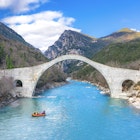
Mar 4, 2024 • 6 min read
Security Alert May 17, 2024
Worldwide caution.
- Travel Advisories |
- Contact Us |
- MyTravelGov |
Find U.S. Embassies & Consulates
Travel.state.gov, congressional liaison, special issuance agency, u.s. passports, international travel, intercountry adoption, international parental child abduction, records and authentications, popular links, travel advisories, mytravelgov, stay connected, legal resources, legal information, info for u.s. law enforcement, replace or certify documents.
Share this page:
Learn about your destination
Take 90 seconds for safer travel.
Travel Advisory Levels
Enroll in step.

Subscribe to get up-to-date safety and security information and help us reach you in an emergency abroad.
Recommended Web Browsers: Microsoft Edge or Google Chrome.
External Link
You are about to leave travel.state.gov for an external website that is not maintained by the U.S. Department of State.
Links to external websites are provided as a convenience and should not be construed as an endorsement by the U.S. Department of State of the views or products contained therein. If you wish to remain on travel.state.gov, click the "cancel" message.
You are about to visit:

HOW TO TRAVEL
No plf required to enter greece as of 15 march.
The abolition of the PLF simplifies the entry process for travellers
BY TRAVEL TEAM
Translated by angeliki kouroutzi, published 04 march 2022, photo: shutterstock.
Tourism Minister Vassilis Kikilias said in a statement that the PLF requirement for visitors to Greece is being abolished.
The statement of the Minister of Tourism reads as follows:
“Following the recommendation of the Expert Committee of the Ministry of Health, the completion of the Passenger Identification Card (PID) by visitors from all countries for entry into Greece will be abolished as of 15 March 2022. The abolition of the PLF simplifies the entry process for travellers, shifting the emphasis to checking vaccination certificates.
In addition, the adoption of the new health protocols for tourism businesses puts Greece in a competitive position. For another year, we are ready to welcome our visitors safely.”
The Commission also recommended increasing the capacity of tourist buses from 85% to 100% from Saturday 5 March, with other protection measures – natural ventilation, use of masks – remaining in force.
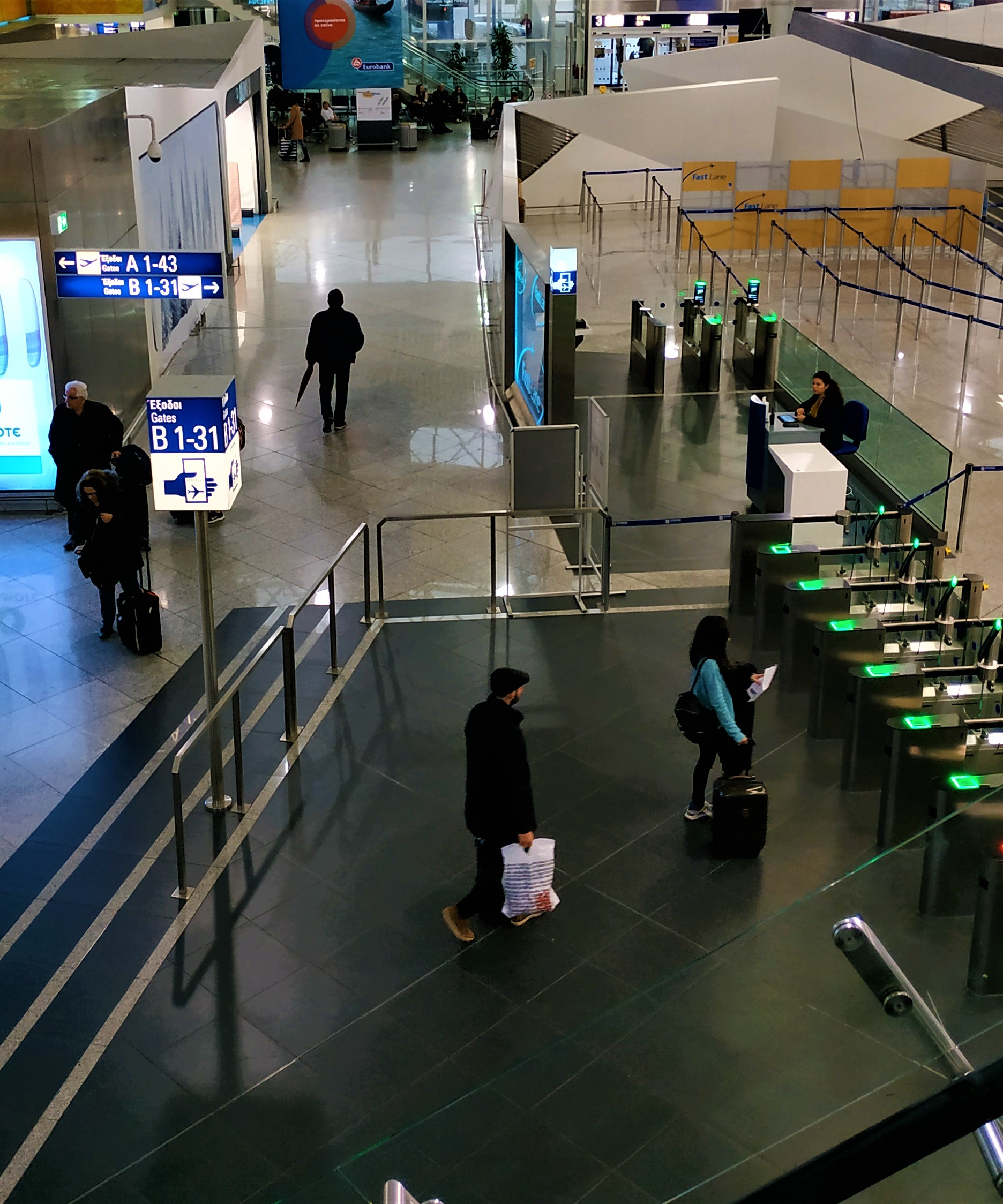
It is noted that in the new special health protocol for the operation of tourist facilities, cooperation with a doctor or health structure, acting on the basis of the EODY’s instructions for the control of COVID-19, remains mandatory for accommodation facilities of more than 50 rooms, while, among other things, it is provided that:
-The provision of disposable gloves to staff working in the cleaning department and kitchen workers
-The abolition of the use of disposable gloves for tourists while at the buffet. The use of disinfectant liquid remains mandatory
-The abolition of disposable tablecloths
-The abolition of cleaning surfaces with a steam device with a temperature of more than 70°C. This will only be done as decontamination after a confirmed outbreak within the premises
The new specific health protocol for the operation of tourist facilities will enter into force after the publication of the relevant CPR in the Government Gazette.
Hilton: Portfolio expansion in Greece with addition of Pentelikon Athens, Curio Collection by Hilton as well as Hampton by Hilton Piraeus
European traveller attraction to Greece grows stronger
RELATED ARTICLES

The 15 Most Impressive Waterparks in Greece

Top 12 Traditional Fish Restaurants in and around Athens
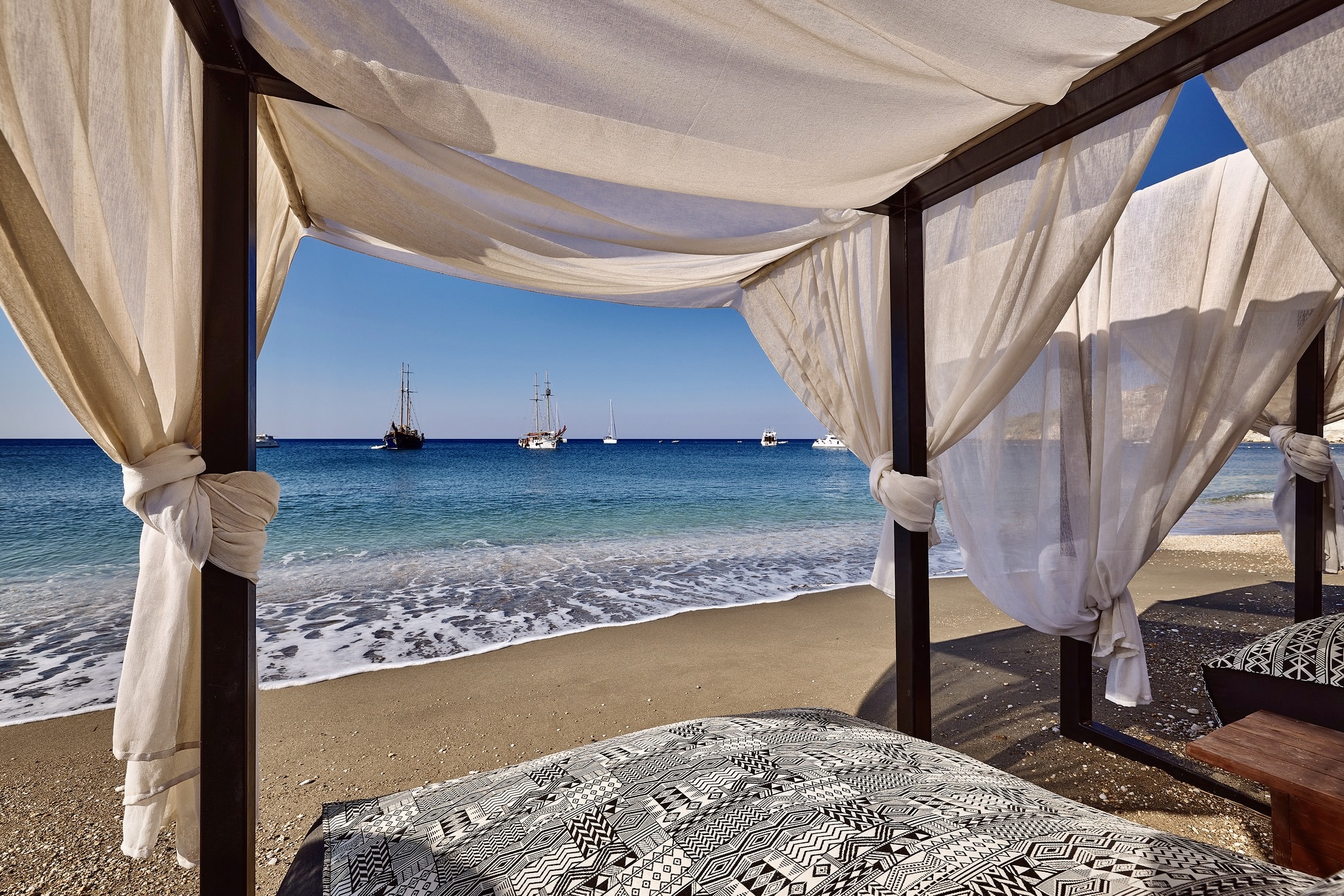
FOOD & DRINK
Fresh summer breeze at milos’ 8 best bars.
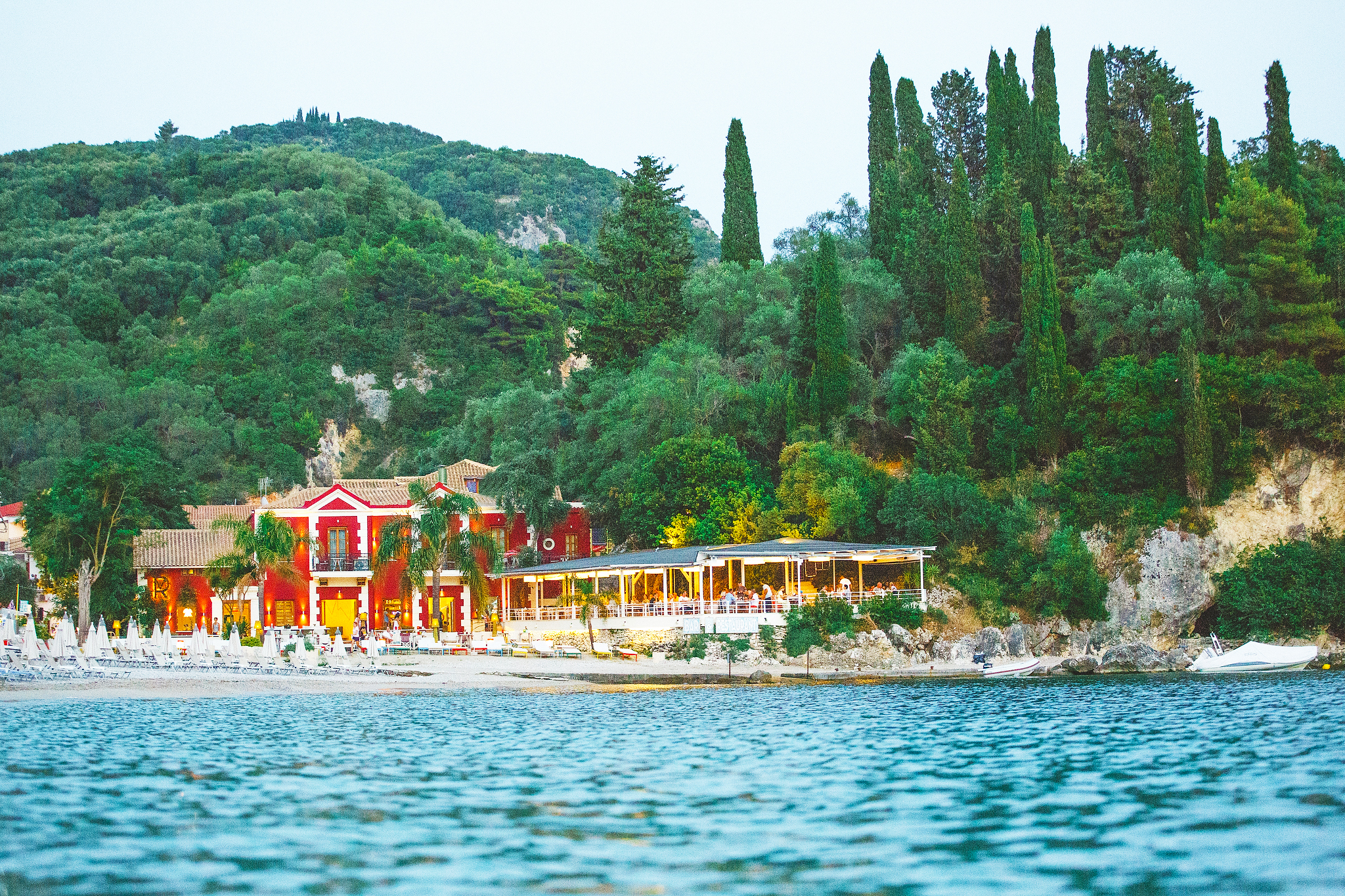
Where to Eat Now in the Ionian Paradise of Parga
Bring photo ID to vote Check what photo ID you'll need to vote in person in the General Election on 4 July.
Foreign travel advice
Get advice about travelling abroad, including the latest information on coronavirus, safety and security, entry requirements and travel warnings.
Countries or territories
226 Countries or territories
Countries starting with A
- Afghanistan
- Antarctica/British Antarctic Territory
- Antigua and Barbuda
Countries starting with B
- Bonaire/St Eustatius/Saba
- Bosnia and Herzegovina
- British Indian Ocean Territory
- British Virgin Islands
- Burkina Faso
Countries starting with C
- Cayman Islands
- Central African Republic
- Cook Islands, Tokelau and Niue
- Côte d'Ivoire
- Czech Republic
Countries starting with D
- Democratic Republic of the Congo
- Dominican Republic
Countries starting with E
- El Salvador
- Equatorial Guinea
Countries starting with F
- Falkland Islands
- Federated States of Micronesia
- French Guiana
- French Polynesia
Countries starting with G
- Guinea-Bissau
Countries starting with H
Countries starting with i, countries starting with j, countries starting with k, countries starting with l.
- Liechtenstein
Countries starting with M
- Marshall Islands
- Myanmar (Burma)
Countries starting with N
- Netherlands
- New Caledonia
- New Zealand
- North Korea
- North Macedonia
Countries starting with O
Countries starting with p.
- The Occupied Palestinian Territories
- Papua New Guinea
- Philippines
- Pitcairn Island
Countries starting with Q
Countries starting with r, countries starting with s.
- São Tomé and Principe
- Saudi Arabia
- Sierra Leone
- Solomon Islands
- South Africa
- South Georgia and the South Sandwich Islands
- South Korea
- South Sudan
- St Helena, Ascension and Tristan da Cunha
- St Kitts and Nevis
- St Martin and St Barthélemy
- St Pierre & Miquelon
- St Vincent and the Grenadines
- Switzerland
Countries starting with T
- Timor-Leste
- Trinidad and Tobago
- Turkmenistan
- Turks and Caicos Islands
Countries starting with U
- United Arab Emirates
Countries starting with V
Countries starting with w.
- Wallis and Futuna
- Western Sahara
Countries starting with Y
Countries starting with z, get updates for all countries, is this page useful.
- Yes this page is useful
- No this page is not useful
Help us improve GOV.UK
Don’t include personal or financial information like your National Insurance number or credit card details.
To help us improve GOV.UK, we’d like to know more about your visit today. Please fill in this survey (opens in a new tab) .
- Hospitality
- Land Transportation
- Travel Operators
- Marketplace
- Top Archaeological Sites
- Tourism Education
- Niche Markets
- Trade Associations – Gov – Org
- Greek Hotels Reopening
- The Day After
- Local Actions
- Investment News
- Thought Leaders 2024
- Thought Leaders 2023
- Business Talk
- Recruitments
- 2024 – International Women’s Day
- 2021 – International Women’s Day
- 2018 – International Women’s Day
- Northern Greece
- Calendar of events
- Greek Hospitality Awards
- Tourism Awards 2019
- ITB Berlin 2024 Special
- ITB Berlin 2023 Special
- ITB Berlin 2019 Special
- ITB Berlin 2018 Special
- ITB Berlin 2017 Special
- 100% Hotel Show
- Philoxenia 2014 Special
- WTM London 2023 Special
- WTM London 2022 Special
- WTM London 2019 Special
- WTM London 2018 Special
- WTM London 2017 Special
- GTP Careers in Tourism
- GTP Ferry Connections
Greek Tourism Bill Targets Sector Challenges, Says Minister

Greek Tourism Minister Olga Kefalogianni.
Greek Tourism Minister Olga Kefalogianni recently introduced a redrafted bill for the tourism sector, intended to replace the existing law and address areas that currently hinder the country’s smooth tourism development.
Titled “Enhancement of tourist infrastructure and education; modernization of the framework for the profession of tourist guides and timeshare leases; regulations for tourism bodies, and other provisions for the strengthening of tourism”, the new bill had been put up for consultation with relevant ministries, sectoral bodies, and citizens.
“The revised bill serves both short-term and long-term goals, includes targeted interventions that address important issues, and is aligned with the national development strategy,” the minister said during her speech to the Standing Committee on Production and Trade of the Hellenic Parliament.
“Through the proposed provisions, we can move closer to our goal of establishing Greece as a global tourism leader , known for its rich offerings and the sustainable development of destinations and tourism products,” Kefalogianni added.
Among other things, the revised bill contains amendments that aim to improve the institutional framework concerning luxury camping (glamping) sites , the long-term leasing of furnished holiday homes , and condo hotels .
The bill tackles the shortage of berths in marinas by allowing for the installation of floating docks and enabling the construction of essential facilities like accessible restrooms, crucial for ensuring the efficient operation of tourist ports.
Furthermore, the bill aims to enhance the regulatory framework for medical tourism providers ; streamline regulations for spas ; offer support for niche tourism sectors like wine and fishing tourism; and enhance and upgrade tourism education .

Regarding the profession of tourist guides , the minister highlighted the update of the outdated institutional framework (law 710/1977, A’ 283) through the new bill. According to the minister, the existing framework aims to effectively regulate issues related to the tourist guide profession and ensure service quality.
Additionally, the new bill modernizes the institutional framework for timeshare accommodation leases (Law 1652/1986, A’ 167) to align with European practices.
Furthermore, the bill simplifies operations for Destination Management and Marketing Organizations (DMMOs) and introduces provisions for their active involvement in promoting, managing, and enhancing destinations. Key amendments include granting tourism bodies and professionals a role in decision-making processes for destination promotion and establishing a dedicated tourism committee to strengthen public-private sector cooperation.
Kefalogianni emphasized that the provisions to the tourism bill are timely, given the positive signals for Greek tourism.
“In 2023, Greece entered the top ten most popular destinations worldwide,” she noted, highlighting a strong start in 2024 with regards to travel receipts and arrivals.
“With this bill we are planning and implementing policies and actions for Greek tourism in the coming decades,” Kefalogianni said.
- Join the 15,000+ travel executives who read our newsletter
About the Author
Arrivals to greece via road increase by 13.3% in january-may, fires break out on greek islands kos, chios, and crete, add your comment cancel reply.
Save my name, email, and website in this browser for the next time I comment.

Join our Newsletter
Join our GTP Headlines free daily newsletter

Signup to receive our daily travel-tourism industry newsletter.
SUBSCRIBE TO RSS
Copyright notice.
The team | About GTP Headlines
Greek Travel Pages, 6, Psylla str. Athens GR 10557 Call center: +30 210 324 7511
Contact Details
Guest posts are welcome. Read the editorial guidelines here.

IMAGES
COMMENTS
Travellers, who decide to fill out the simplified form, will receive the PLF with their unique Quick Response (QR) code via email (the QR code will be provided in a link in the email). The PLF can also be found on the Visit Greece app and at travel.gov.gr. It is strongly recommended that all visitors download the Visit Greece app (GDPR ...
Visit the Embassy of Greece website for the most current visa information.. Greece is a party to the Schengen Agreement; therefore, U.S. citizens may enter Greece without a visa for stays of up to 90 days for tourism or business purposes.For additional details about travel into and within Schengen countries, please see our Schengen fact sheet.. For entry into Greece, your passport should have ...
FCDO travel advice for Greece. Includes safety and security, insurance, entry requirements and legal differences.
Reissued with obsolete COVID-19 page links removed. Exercise normal precautions in Greece. Read the country information page for additional information on travel to Greece.. If you decide to travel to Greece: Enroll in the Smart Traveler Enrollment Program () to receive security messages and make it easier to locate you in an emergency. Follow the Department of State on Facebook and Twitter.
Passport validity requirements. Greece follows Schengen area rules. Your passport must: have a 'date of issue' less than 10 years before the date you arrive - if you renewed your passport ...
Road travel. If you are planning to drive in Greece, see information on driving abroad and check the rules of the road in the RAC's Greece guide. The guide lists driving regulations and other ...
Effective Sunday, December 19, 2021, travelers to Greece will be required to present a negative COVID-19 PCR test taken within 72 hours or a laboratory rapid antigen test taken within 24 hours of arrival to Greece, according to an announcement by the Greek Health Ministry. This testing requirement will apply to all travelers age 5 or above ...
1. How can I travel to Greece? Greece welcomes visitors applying advanced health protection protocols. Greek Tourism operates with the maximum safety possible, for tourists, employees and every person involved in the provision of tourist services. Entry into Greece during the period from 21.03.2022 until 04.04.2022, is allowed under the following
The PLF can also be found on the Visit Greece app and at travel.gov.gr. It is strongly recommended that all visitors download the Visit Greece app (GDPR compliant) for free, prior their arrival in Greece. ... Source: travel.gov.gr. Leave a Reply Cancel reply. You must be logged in to post a comment. Also Read. 08 Feb 2022, 09:55.
Greek authorities have posted answers to many Frequently Asked Questions about travel to and within Greece at travel.gov.gr and greecehealthfirst.gr. The Greek National Tourism Organization has also launched the Visit Greece app, which includes detailed COVID-19 travel updates, as well as a map of COVID-19 diagnostic testing locations.
700 plant species of Greece are endemic, meaning that they may be found only in Greece; approximately 20% of those are aromatic or medicinal plants. Greece' s official name is Hellenic Republic. However Greeks call their country Hellas or Hellada. Greece has historically engaged in wine making.
As the threat of coronavirus has not yet been eliminated, the country has opened its borders, introducing security measures for both visitors and residents. In this regard, in order to enter Greece, travellers must present either a negative test -molecular or rapid- a vaccination certificate or a positive antibody certificate. More specifically:
All international travelers should be fully vaccinated against measles with the measles-mumps-rubella (MMR) vaccine, including an early dose for infants 6-11 months, according to CDC's measles vaccination recommendations for international travel. Dogs infected with rabies are not commonly found in Greece.
Travel documents. Travel documents for minors, information on expired/lost/stolen passport or identity card. Travel within the Union.
Very few restrictions remain in place in Greece. As of May 1, the country removed any need to show proof of Covid vaccination or recovery to enter the country. Likewise, proof of vaccination ...
Greece has dropped all remaining travel restrictions, meaning unvaccinated tourists no longer need to take a pre-departure test to enter the country. All passengers - regardless of where they're ...
FCDO travel advice for Greece. Includes safety and security, insurance, entry requirements and legal differences.
Greece travel advice. FCDO travel advice for Greece. Includes safety and security, insurance, entry requirements and legal differences.
The Greek government has released an interactive color-coded map of Greece at covid19.gov.gr containing information regarding Covid-19 and the different measures put in place in order to limit the ... Direct flights between Thessaloniki and Tel-Aviv are expected to resume once the restrictions on travel between Greece and Israel are lifted ...
The PLF can also be found on the Visit Greece app and at travel.gov.gr. It is strongly recommended that all visitors download the Visit Greece app (GDPR compliant) for free, prior their arrival in Greece. ... How can one travel to Greece? Greece is ready to welcome visitors from abroad again, applying advanced health protection protocols. In ...
5. Book everything in advance during peak season. In peak season, prices are high, and demand for car hire, accommodations and ferry tickets is even higher - this is not the time for ad hoc bookings on the fly. Greece is an incredibly popular summer destination, and the best options get snapped up well in advance. 6.
Greece Travel Advisory: Level 1: Exercise Normal Precautions: July 26, 2023: Hungary Travel Advisory : Level 1: Exercise Normal Precautions: July 26, 2023: ... You are about to leave travel.state.gov for an external website that is not maintained by the U.S. Department of State.
The statement of the Minister of Tourism reads as follows: "Following the recommendation of the Expert Committee of the Ministry of Health, the completion of the Passenger Identification Card (PID) by visitors from all countries for entry into Greece will be abolished as of 15 March 2022. The abolition of the PLF simplifies the entry process ...
On the Government travel advice page for Greece it has not recommended people to not travel to Greece. Its latest update at the time of writing was on June 25 stating: "Information on what you can do to prepare for and respond to extreme weather and natural hazards ('Safety and security' page)." ...
In 2023, severe wildfires raged across Greece and other parts of the Mediterranean, forcing the evacuation of thousands of tourists on popular holiday islands including Rhodes, Evia and Corfu ...
The government minister said, "We have had cases of foreign travellers who lost their lives in Greece. They lost their lives because they underestimated the phenomenon [of climate change]".
Foreign travel advice. Get advice about travelling abroad, including the latest information on coronavirus, safety and security, entry requirements and travel warnings. Search for a country or ...
"In 2023, Greece entered the top ten most popular destinations worldwide," she noted, highlighting a strong start in 2024 with regards to travel receipts and arrivals. "With this bill we are planning and implementing policies and actions for Greek tourism in the coming decades," Kefalogianni said.
President Joe Biden's dismal showing at the CNN presidential debate against former President Donald Trump resonated around the world, with foreign diplomats expressing shock and concern while ...